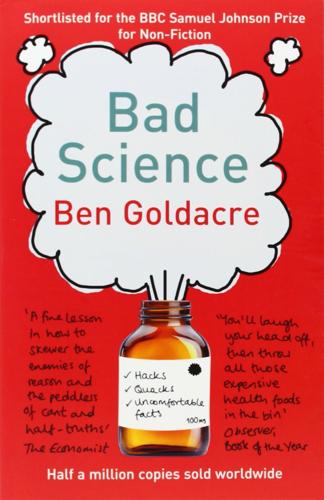
Bad Science
by
Ben Goldacre
Published 1 Jan 2008
Because the placebo effect is far more complex and interesting than most people suspect, going way beyond a mere sugar pill: it’s about the whole cultural experience of a treatment, your expectations beforehand, the consultation process you go through while receiving the treatment, and much more. We know that two sugar pills are a more effective treatment than one sugar pill, for example, and we know that salt-water injections are a more effective treatment for pain than sugar pills, not because salt-water injections have any biological action on the body, but because an injection feels like a more dramatic intervention.
…
Moerman took only the placebo data from these trials, and then, in his second ingenious move, from all of these studies, of all the different drugs, with their different dosing regimes, he took the ulcer healing rate from the placebo arm of trials where the ‘placebo’ treatment was two sugar pills a day, and compared that with the ulcer healing rate in the placebo arm of trials where the placebo was four sugar pills a day. He found, spectacularly, that four sugar pills are better than two (these findings have also been replicated in a different dataset, for those who are switched on enough to worry about the replicability of important clinical findings). What the treatment looks like So four pills are better than two: but how can this be? Does a placebo sugar pill simply exert an effect like any other pill? Is there a dose-response curve, as pharmacologists would find for any other drug?
…
Route of administration has an effect as well: salt-water injections have been shown in three separate experiments to be more effective than sugar pills for blood pressure, for headaches and for postoperative pain, not because of any physical benefit of salt-water injection over sugar pills—there isn’t one—but because, as everyone knows, an injection is a much more dramatic intervention than just taking a pill. Closer to home for the alternative therapists, the BMJ recently published an article comparing two different placebo treatments for arm pain, one of which was a sugar pill, and one of which was a ‘ritual’, a treatment modelled on acupuncture: the trial found that the more elaborate placebo ritual had a greater benefit.
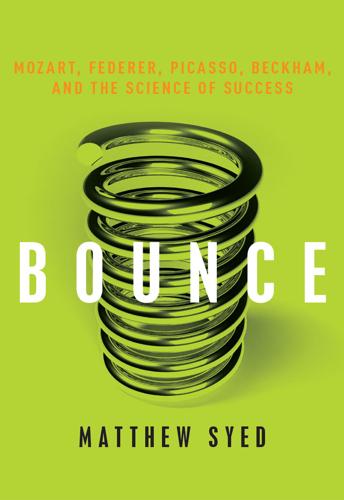
Bounce: Mozart, Federer, Picasso, Beckham, and the Science of Success
by
Matthew Syed
Published 19 Apr 2010
Further experiments have shown that oxazepam, a drug like Valium, is more effective at treating anxiety when green and more effective for depression when yellow; that the sedative chlordiazepoxide is more effective in capsule form than pill form; and that invasive saltwater injections are more effective than sugar pills for blood pressure, headaches, and other pains, even though neither provides any known physical benefit. Another experiment compared two different placebo treatments for arm pain: one a sugar pill, the other a ritual modeled on acupuncture. The more elaborate procedure was significantly more effective. All of which begins to hint at how the placebo effect works. The power of the placebo has nothing to do, by definition, with the pharmacological properties of the drug; rather, its effect derives from the entirely false belief that the drug is effective.
…
In my scientific observations, I have observed that no matter what name you give the Infinite Absolute you worship, no matter what theology you ascribe to, the results of believing in God are the same.” In the context of the last section, it is not difficult to see what is going on: this is the placebo effect in action once again. But this time it is not the false belief in the efficacy of sugar pills that is generating the outcomes; rather, it is the belief in the healing power of God. And, as with sugar pills, it is those who believe most fervently who benefit the most. Indeed, it could be argued that religion is the ultimate placebo. Instead of the authority of a doctor, belief is based on the authority of God, who is both infallible and omnipotent.
…
What the Scriptures seem to be saying is that God does not act in proportion to the worthiness of the intercessor, but in proportion to the intercessor’s belief that God will so act. Substitute “sugar pill” for “God” in the previous sentence, and you have just defined the placebo effect. “Nothing,” writes Anne Harrington, professor of the history of science at Harvard University, “has contributed more to facilitating this innate capacity [of the body to heal itself] than belief in God’s capacity to heal us.” Karl Marx called religion the “opium of the masses.” He was almost right: religion is the sugar pill of the masses. The Placebo Effect in Sports In 1952 Norman Vincent Peale, a Protestant preacher, wrote what was to become arguably the single most important work of popular psychology of the twentieth century.
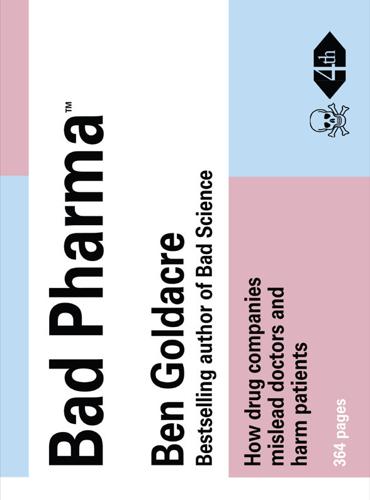
Bad Pharma: How Medicine Is Broken, and How We Can Fix It
by
Ben Goldacre
Published 1 Jan 2012
This is a problem in some studies: if you believe that you’ve been given a very effective medicine, or that you’ve been given a rubbish one, then the power of your beliefs and expectations can affect your health, through a phenomenon known as the placebo effect. If you’re comparing a painkiller against a dummy sugar pill, then a patient who knows they’ve been given a sugar pill for pain is likely to be annoyed and in more pain. But it’s harder to believe that patients have firm beliefs about the relative benefits of atorvastatin and simvastatin, and that these beliefs will then impact on cardiovascular mortality five years later. In all research, we make a trade-off between what is ideal and what is practical, giving careful consideration to the impact that any methodological shortcomings will have on a study’s results.
…
At this moment we should take a brief moment to mention quacks: alternative therapists who sell vitamins and homeopathy sugar pills, which perform no better than placebo in fair tests, and who use even cruder marketing tricks than the ones described in this book. These business people often like to pretend, with some swagger, that their trade somehow challenges the pharmaceutical industry. If they profit at all from the justified anger that people feel about the problems you have read about here, then it comes at the expense of genuinely constructive activity. Selling ineffective sugar pills is not a meaningful policy response the dangerous regulatory failure in the pharmaceutical industry.
…
How do industry-sponsored trials almost always manage to get a positive result? It is, as far as anyone can be certain, a combination of factors. Sometimes trials are flawed by design. You can compare your new drug with something you know to be rubbish – an existing drug at an inadequate dose, perhaps, or a placebo sugar pill that does almost nothing. You can choose your patients very carefully, so they are more likely to get better on your treatment. You can peek at the results halfway through, and stop your trial early if they look good (which is – for interesting reasons we shall discuss – statistical poison). And so on.
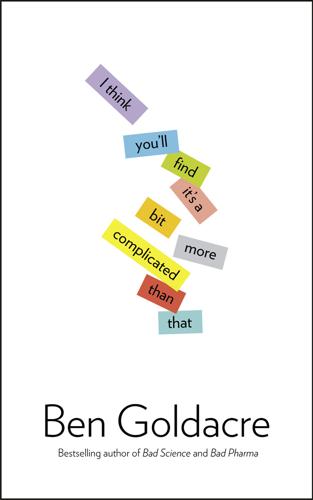
I Think You'll Find It's a Bit More Complicated Than That
by
Ben Goldacre
Published 22 Oct 2014
But if you say the evidence doesn’t show evidence of harm from branded packaging, you are simply wrong. All Bow Before the Mighty Power of the Nocebo Effect Guardian, 28 November 2009 I’m fine with people wasting their money on sugar pills, but I have higher expectations of government bodies. The Medicines and Healthcare Regulatory Authority has decided to let homeopathy manufacturers make medical claims on their sugar pill bottles, without any evidence of efficacy, and the government funds homeopathy on the NHS. This week the Parliamentary Science and Technology Select Committee looked into the evidence behind these decisions.
…
But the best moment was when Dr Peter Fisher from the Royal London Homeopathic Hospital (funded by the NHS) explained that homeopathic sugar pills have physical side effects, so they must be powerful. Many raised their eyebrows; but interestingly, the homeopath is correct. People can experience side effects when they receive pills that contain no medicine at all. A paper published in the journal Pain next month looks at this very issue. Its authors found every single placebo-controlled trial ever conducted on a migraine drug, and looked at the side effects reported by the people in the control group, who received a dummy ‘placebo’ sugar pill instead of the real drug. Not only were these side effects common, they were also similar to the specific side effects you’d have expected if you’d received real drug in the trial: so patients getting placebo instead of anticonvulsants, for example, reported memory difficulties, sleepiness and loss of appetite, which are typical side effects of anticonvulsants; while patients getting placebo instead of painkillers got digestive problems, which themselves are commonly caused by painkillers.
…
Here we see how our intuitions about whether a treatment works can be affected by the way the numbers are presented, how our outrage is lower when a criminal has more victims, why blind auditions can help combat sexism in orchestras, how people can turn their back on all of science when some evidence challenges just one of their prejudices, how people win more in a simple game when they’re told they’ve got a lucky ball, how responding to a smear can reinforce it, how smokers are misled by cigarette packaging, how people can convince themselves that patients in comas are communicating, and how negative beliefs can make people experience horrible side effects, even when they’re only taking sugar pills with no medicine in them. In this section I also unwisely disclose my own positive and creative visualisation ritual, and the evidence behind it. In BAD JOURNALISM we see the many different ways that journalists can distort scientific findings: misrepresenting an MSc student’s dissertation project with a headline that claims scientists are blaming women for their own rape, creating vaccine scares, and saying that exercise makes you fat.
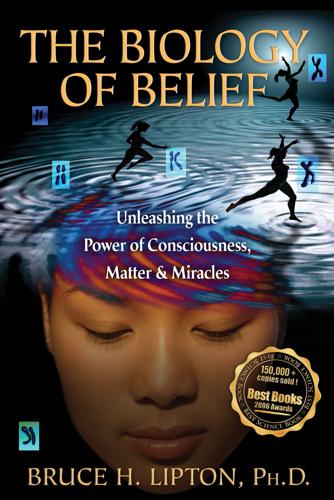
The Biology of Belief: Unleashing the Power of Consciousness, Matter & Miracles
by
Bruce H. Lipton
Published 1 Jan 2005
Unfortunately, that perception is a “belief” that has been proven to be patently incorrect in a quantum mechanical universe! Placebos: The Belief Effect Every medical student learns, at least in passing, that the mind can affect the body. They learn that some people get better when they believe (falsely) they are getting medicine. When patients get better by ingesting a sugar pill, medicine defines it as the placebo effect. My friend Rob Williams, founder of PSYCH-K, an energy-based psychological treatment system, suggests that it would be more appropriate to refer to it as the perception effect. I call it the belief effect to stress that our perceptions, whether they are accurate or inaccurate, equally impact our behavior and our bodies.
…
I believe the reason the mind has so summarily been dismissed in medicine is the result, not only of dogmatic thinking, but also of financial considerations. If the power of your mind can heal your sick body, why should you go to the doctor and more importantly, why would you need to buy drugs? In fact, I was recently chagrined to learn that drug companies are studying patients who respond to sugar pills with the goal of eliminating them from early clinical trials. It inevitably disturbs pharmaceutical manufacturers that in most of their clinical trials the placebos, the “fake” drugs, prove to be as effective as their engineered chemical cocktails. (Greenberg 2003) Though the drug companies insist they’re not trying to make it easier for ineffective drugs to get approved, it is clear that effectiveness of placebo pills is a threat to the pharmaceutical industry.
…
No doubt some patients, the conservatively estimated one third of the population who are particularly susceptible to the healing power of the placebo effect, got better with those treatments. In today’s world, when doctors wearing white coats deliver a treatment decisively, patients may believe the treatment works—and so it does, whether it is a real drug or just a sugar pill. Though the question of how placebos work has in the main been ignored by medicine, recently some mainstream medical researchers are turning their attention to it. The results of those studies suggest that it is not only wacky, nineteenth-century treatments that can foster a placebo effect but also modern medicine’s sophisticated technology, including the most “concrete” of medical tools, surgery.
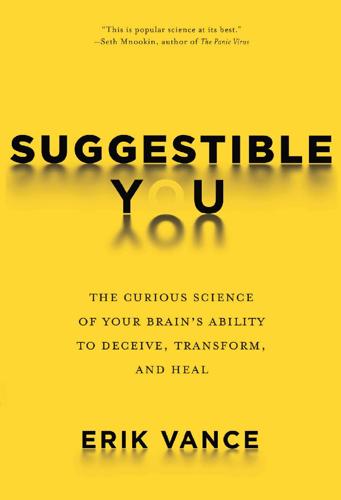
Suggestible You: The Curious Science of Your Brain's Ability to Deceive, Transform, and Heal
by
Erik Vance
Published 14 Sep 2016
That feeling of immediate relief many people experience is the placebo effect—perhaps the purest form of suggestion and expectation. From the Latin for “I shall please,” placebo traditionally refers to anything inert that has an effect on a patient, usually lasting less than a day but sometimes longer: a sugar pill, a saline injection, or sham surgery, often mixed with a little smoke and mirrors. In other words, nothing. But in the world of expectation, sometimes nothing is more powerful than something—if it’s wrapped in the right packaging. That packaging is different for everybody. What allows a placebo to work is something scientists are still trying to understand.
…
In addition, CCK seems to increase pain by lessening the impact of internal opioids. This is what interested Benedetti. He set up an experiment with patients recovering from minor surgery in which he gave them a drug and told them it would make their pain worse, but it was actually just saline. (Generally a shot of salt water is considered inert—the injected version of a sugar pill. However, some scientists have argued that saline shots can cure back pain, and many doctors even use them as therapy. If this is true, it would basically invalidate every study that has used saline as a placebo.) Sure enough, patients reported more pain with the saltwater injection. Then Benedetti blocked their brains’ CCK release with another drug, much as others had done with naloxone and opioids.
…
It has been amended several times since but is still completely bizarre and lives in a legal gray area. ‡ Most of this focuses on his deep antipathy for the way depression drugs are used in this country. Depression is highly suggestible, and as we’ve seen, drugs like Prozac don’t perform terribly well against placebos. For a guy who spent his life studying sugar pills, he knows one when he sees one. CHAPTER SIX SATAN WORSHIPPERS, ALIENS, AND OTHER MEMORIES OF THINGS THAT NEVER HAPPENED There are lots of people who mistake their imagination for their memory. —Josh Billings IN MARCH 1988, RESIDENTS OF THE SMALL TOWN of Stuart, Florida, were gripped by what can only be described as mass hysteria.
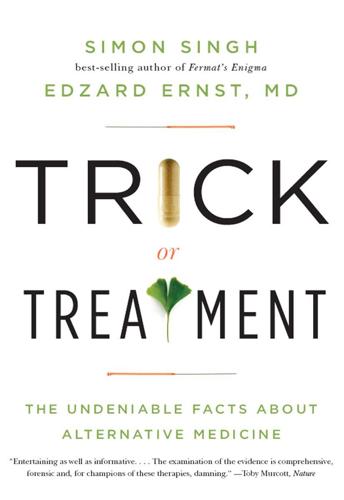
Trick or Treatment: The Undeniable Facts About Alternative Medicine
by
Edzard Ernst
and
Simon Singh
Published 17 Aug 2008
So, if the placebo effect in humans is also a conditioned response, then the explanation for its effectiveness would be that a patient simply associates getting better with, for example, seeing a doctor or taking a pill. After all, ever since childhood a patient will have visited a doctor, received a pill and then felt better. Hence, if a doctor prescribes a pill containing no active ingredient, a so-called sugar pill, then the patient might still experience a benefit due to conditioning. Another explanation for the placebo effect is called the expectation theory. This theory holds that if we expect to benefit from a treatment, then we are more likely to do so. Whereas conditioning would exploit our unconscious minds to provoke a placebo response, the expectation theory suggests that our conscious mind might also be playing a role.
…
Creating identical conditions for the control and the treatment groups effectively blinds the patients to whether or not they are receiving the treatment or the placebo. Yet it is also important to blind whoever is administering the treatment or the placebo. In other words, even the doctors treating the patients should not be aware of whether they are giving a sugar pill or an active pill. This is because a doctor’s demeanour, enthusiasm and tone of voice can all be affected by knowing that he or she is administering a placebo, which means that the doctor might unconsciously give hints to patients that the medicine is merely a placebo. Such leaking of information, of course, can jeopardize the blinding of the patient and the overall reliability of the clinical trial.
…
In the meantime, we will end this chapter by briefly considering another negative aspect of using placebo-based treatments such as homeopathy, namely the cost. This issue has been highlighted by Professor David Colquhoun, a pharmacologist who in 2006 criticized the sale of a homeopathic first-aid kit: All the ‘remedies’ in this kit are in the 30C dilution. They therefore contain no trace of the substance on the label. You pay £38.95 for a lot of sugar pills. To get even one molecule you’d have to swallow a sphere with a diameter equal to the distance from the Earth to the sun. That is hard to swallow. If a person is going to spend £38.95 on a first-aid kit, then surely it is better to spend the money on real medicines that are genuinely effective, as opposed to wasting it on fake medicines, such as homeopathy, which offer only a placebo benefit.
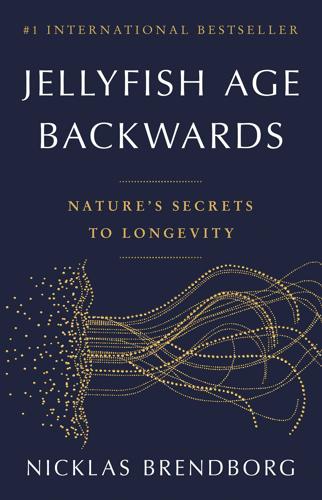
Jellyfish Age Backwards: Nature's Secrets to Longevity
by
Nicklas Brendborg
Published 17 Jan 2023
Chapter 24 Mind Over Matter Imagine that we’re a pair of doctors who are visited by our friend John. John complains about a headache, and we tell him that, sure, we have a pill for that. But instead of giving John a pain reliever, we deceive him. We tell him he’s getting a drug, but it’s actually just a sugar pill. John thanks us and swallows the pill with a glass of water. Now, the sugar pill should have no medical effect whatsoever. But soon, John starts lightening up and he thanks us for curing his headache. Is John a liar? No. What John is experiencing is a classic effect in medicine called the placebo effect. This is a phenomenon where one’s expectations end up having an actual medical impact.
…
There’s a lot to suggest the placebo effect is an important part of most medical treatment, especially when there’s a mental component involved. As a result, the placebo effect can be enhanced in accordance with the strength of a patient’s belief. It works even better if the patient thinks the drug is brand new, if it is expensive, if the pill is really big or – for some reason – if it is red. Treating headaches with sugar pills is interesting, but there are also far more bizarre examples out there – for instance, the use of placebo surgery. In one study, a group of researchers were treating patients with osteoarthritis of the knee. This is a painful condition that is hard to treat, but which can sometimes be alleviated using surgery.
…
There are even studies where doctors are completely honest about their use of placebos. They tell patients, ‘This is just a placebo treatment, we’re not actually doing anything. However, previous studies show that placebo treatments work.’ And then the treatment does end up working. In one study, for example, doctors gave sugar pills to patients with irritable bowel syndrome and were open about what they were doing. Nevertheless, patients’ symptoms improved. I guess the good news is that the advice in this book will help you live longer providing I’ve managed to convince you I’m right. Okay, living for a long time might require a little more than ‘believe, achieve’, but studies do show that people who feel younger than their actual age tend to live longer.
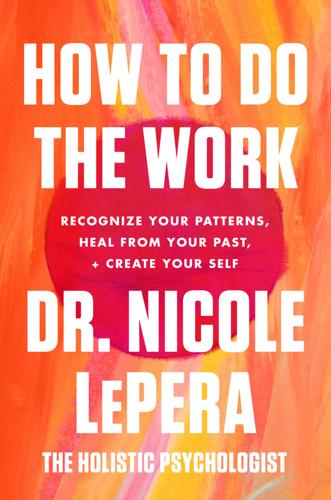
How to Do the Work: Recognize Your Patterns, Heal From Your Past, and Create Your Self
by
Nicole Lepera
Published 9 Mar 2021
We can and should help heal our bodies and our minds to create wellness for ourselves. THE PLACEBO EFFECT The more I learned about epigenetics, the more I began studying the literature of healing and transformation. I learned about the power of belief and the placebo effect, which is a term that describes the power of an inert substance (such as a sugar pill) to improve symptoms of illness. I’ve been obsessed throughout my life with stories of spontaneous remission and people overcoming the most debilitating illnesses, seemingly impossible without medical intervention. Even still, these stories always seemed radical. They seemed more like miracles than anything scientifically valid.
…
The mind can create real, measurable changes in the body—and the placebo effect is mainstream science’s recognition of this fact. A significant placebo effect has been documented in conditions ranging from Parkinson’s disease12 to irritable bowel syndrome.13 Some of the strongest responses have been observed in depression studies,14 where participants who believe they are on antidepressants but are really taking sugar pills report feeling generally improved. You don’t even need to be sick to experience the placebo effect. In a study at the University of Glasgow,15 researchers told fifteen runners that they were being administered doping drugs and then asked them to run a race. The runners’ race times increased significantly even though they were getting only saline injections.
…
It’s called the nocebo effect,16,17 and it’s the placebo effect’s “evil twin.” This occurs when our thoughts don’t make us better, they make us worse. To study this effect, researchers often tell participants that the drugs they are taking have terrible side effects, when they are really only taking a sugar pill. Believing they were taking an active medication, many people actually began to experience the warned-about side effects. One notable, and extreme, example of the dangers of the nocebo effect18 took place outside a lab in the 1970s, when a physician accidentally told a patient who had been diagnosed with esophageal cancer that he had three months to live.
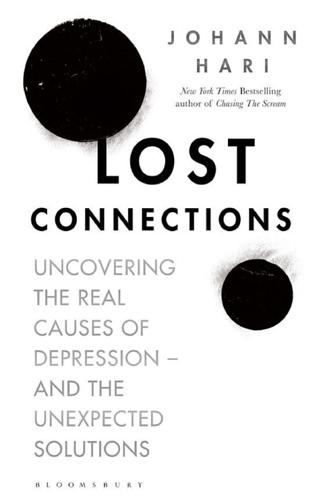
Lost Connections: Uncovering the Real Causes of Depression – and the Unexpected Solutions
by
Johann Hari
Published 1 Jan 2018
They split the people taking part into three groups. If you are in the first group, they tell you they are giving you a chemical antidepressant—but in fact, they simply give you a placebo: a sugar pill, as effective as John Haygarth’s wand. If you are in the second group, you are told you were being given a chemical antidepressant—and you actually get one. And if you are in the third group, you aren’t given anything—no drug, and no sugar pill; you are just followed over time. The third group, Irving says,5 is really important—although almost all studies leave it out. “Imagine,” he explains, “that you are investigating a new remedy for colds.”
…
But he knew that the new antidepressant drugs worked better than a placebo—that they had a real chemical effect. He knew this for a simple reason. If you want to sell a drug to the public, you have to go through a rigorous process. Your drug has to be tested on two groups: one is given the real drug, and the other is given a sugar pill (or some other placebo). Then the scientists compare these groups. You are allowed to sell the drug to the public only if it does significantly better than the placebo. So when one of his graduate students—a young Israeli named Guy Sapirstein—approached Irving with a proposal, he was intrigued, but not wildly excited.
…
So Irving and Guy started to compare the results for antidepressants from these three groups, in every study that had ever been published. To find out the chemical effects of the drug, you do two things. First, you subtract all the people who would have just gotten better anyway. Then you subtract all the people who got better when they were given a sugar pill. What’s left is the real effect of the drug. But when they added up the figures from all the publicly available scientific studies on antidepressants, what they found baffled them. The numbers showed that 25 percent of the effects of antidepressants were due to natural recovery, 50 percent6 were due to the story you had been told about them, and only 25 percent to the actual chemicals.
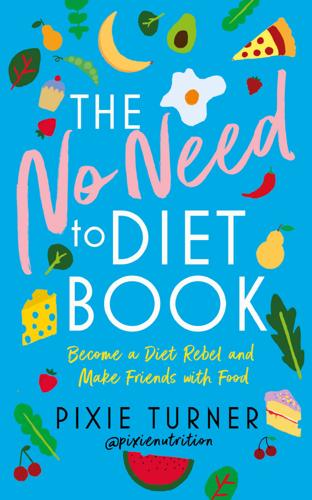
The No Need to Diet Book: Become a Diet Rebel and Make Friends With Food
by
Plantbased Pixie
Published 7 Mar 2019
We are all familiar with the placebo effect, whereby improvements in symptoms can occur even without any medical intervention. Give someone a sugar pill and tell them it’s a painkiller and it’s likely that their headache will improve. Place someone on the operating table, cut them open and sew them immediately back up again and they’ll report feeling better afterwards, despite a lack of actual surgery taking place. Of course, this doesn’t work 100 per cent of the time, but it works far more often than can be attributed to chance. While placebo has positive effects, nocebo is negative. Give someone a sugar pill and a list of side effects and there’s a chance they’ll report experiencing some of those side effects.
…
In food, this can occur with a wide variety of foods, including lactose and gluten. When people who claimed to be gluten sensitive were fed a diet they thought contained gluten, they reported symptoms even though there actually wasn’t any gluten in the food.78 Similarly, when people who are lactose intolerant are given a sugar pill, some experience symptoms such as abdominal pain.79 To say this is ‘all in the mind’ is true, and in my eyes doesn’t dismiss these effects but just shows how dangerous fearmongering tactics can be. If someone has become convinced that a certain food will do them harm, then not only does it have psychological implications but these can manifest as physical symptoms that are painful and cause distress.
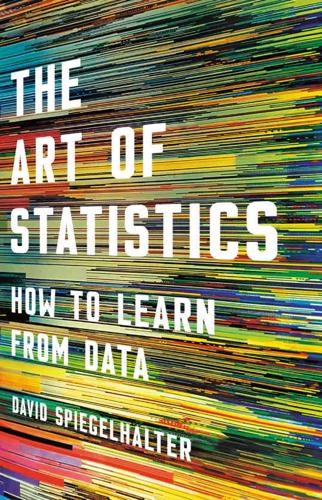
The Art of Statistics: How to Learn From Data
by
David Spiegelhalter
Published 2 Sep 2019
Controls: If we want to investigate the effect of statins on a population, we can’t just give statins to a few people, and then, if they don’t have a heart attack, claim this was due to the pill (regardless of the websites that use this form of anecdotal reasoning to market their products). We need an intervention group, who will be given statins, and a control group who will be given sugar pills or placebos. 2. Allocation of treatment: It is important to compare like with like, so the treatment and comparison groups have to be as similar as possible. The best way to ensure this is by randomly allocating participants to be treated or not, and then seeing what happens to them—this is known as a randomized controlled trial (RCT).
…
Regression-to-the-mean also operates in clinical trials. In the last chapter we saw that randomized trials were needed to evaluate new pharmaceuticals properly, since even people in the control arm showed benefit—the so-called placebo effect. This is often interpreted to mean that just taking a sugar pill (preferably a red one) actually has a beneficial effect on people’s health. But much of the improvement seen in people who do not receive any active treatment may be regression-to-the-mean, since patients are enrolled in trials when they are showing symptoms, and many of these would have resolved anyway.
…
Randomization tests examine all possible ways in which labels for individual data-points can be rearranged, each of which are equally likely under the null hypothesis. The test statistic for each of these permutations is calculated, and the P-value is given by the proportion that lead to more extreme test statistics than that actually observed. placebo: a dummy treatment given to the control arm of a randomized clinical trial, such as a sugar pill disguised to look like the treatment being tested. Poisson distribution: a distribution for a count random variable X for which for x = 0, 1, 2… Then E(X) = μ and V(X) = μ. population: a group from which it is assumed your sample data are drawn, and which provides the probability distribution for a single observation.
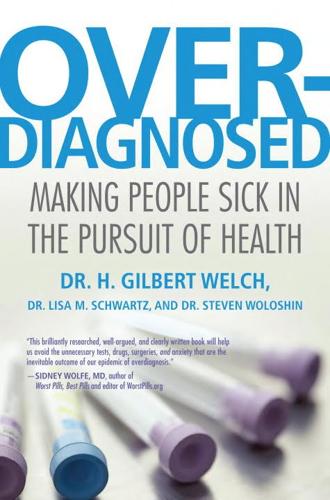
Overdiagnosed: Making People Sick in the Pursuit of Health
by
H. Gilbert Welch
,
Lisa M. Schwartz
and
Steven Woloshin
Published 18 Jan 2011
So before any patient could be enrolled in the study, he had to pass a test to demonstrate that he would take a medicine regularly even if he felt well. Here’s what the test involved. Each prospective participant was given two containers of pills (two because the investigators correctly anticipated that treated patients would require two drugs) along with instructions of how to take each. One pill was an inert sugar pill; the other was vitamin B2—also known as riboflavin. Two weeks later, the participants met with study personnel, and they counted the pills left in each container. If the correct number remained, the investigators presumed that the medicine had been taken correctly. But they had a second way to check whether prospective participants had taken their medicine: a simple urine examination.
…
In contemporary studies of hypertension therapy, typically less than 20 percent fail a test of medication adherence.4 This VA study was a true experiment: The enrolled participants were divided into two groups, and the group to which each subject was assigned was determined purely by chance. One group received treatment for hypertension (the drug hydrochlorothiazide combined with either reserpine or hydralazine); the other group received placebos (inert sugar pills). The VA cooperative study of the treatment of severe hypertension is considered one of our classic randomized trials. Because discussions of randomized trials will appear throughout this book, figure 1.1 illustrates their basic design. Randomized trials are studies in which enrolled patients are assigned to either receive treatment or not simply by chance.
…
Here there is no dire outcome on the horizon.[back] Like most general rules, there are exceptions. Symptom improvement is not a foolproof test of benefit for two reasons. First, some people feel better just because they do something. That is the placebo effect: people sometimes experience a benefit even when they take an inert sugar pill or when they receive a faked surgery. Second, some symptoms, by their very nature, wax and wane spontaneously. People with back pain know this quite well; on some days, their backs feel great, on other days, they feel awful. These two factors can lead people to judge an intervention as beneficial when in fact what is really happening is either a placebo effect or a spontaneous improvement.
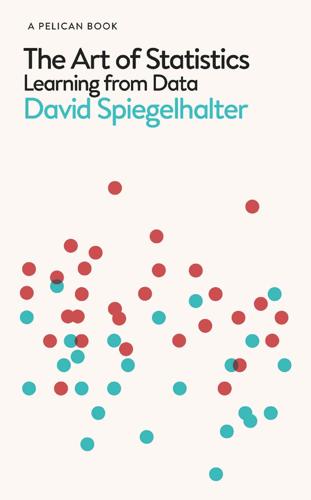
The Art of Statistics: Learning From Data
by
David Spiegelhalter
Published 14 Oct 2019
A proper medical trial should ideally obey the following principles: Controls: If we want to investigate the effect of statins on a population, we can’t just give statins to a few people, and then, if they don’t have a heart attack, claim this was due to the pill (regardless of the websites that use this form of anecdotal reasoning to market their products). We need an intervention group, who will be given statins, and a control group who will be given sugar pills or placebos. Allocation of treatment: It is important to compare like with like, so the treatment and comparison groups have to be as similar as possible. The best way to ensure this is by randomly allocating participants to be treated or not, and then seeing what happens to them – this is known as a randomized controlled trial (RCT).
…
Regression-to-the-mean also operates in clinical trials. In the last chapter we saw that randomized trials were needed to evaluate new pharmaceuticals properly, since even people in the control arm showed benefit – the so-called placebo effect. This is often interpreted to mean that just taking a sugar pill (preferably a red one) actually has a beneficial effect on people’s health. But much of the improvement seen in people who do not receive any active treatment may be regression-to-the-mean, since patients are enrolled in trials when they are showing symptoms, and many of these would have resolved anyway.
…
Randomization tests examine all possible ways in which labels for individual data-points can be rearranged, each of which are equally likely under the null hypothesis. The test statistic for each of these permutations is calculated, and the P-value is given by the proportion that lead to more extreme test statistics than that actually observed. placebo: a dummy treatment given to the control arm of a randomized clinical trial, such as a sugar pill disguised to look like the treatment being tested. Poisson distribution: a distribution for a count random variable X for which for x = 0, 1, 2 … Then E(X) = μ and V(X) = μ. population: a group from which it is assumed your sample data are drawn, and which provides the probability distribution for a single observation.
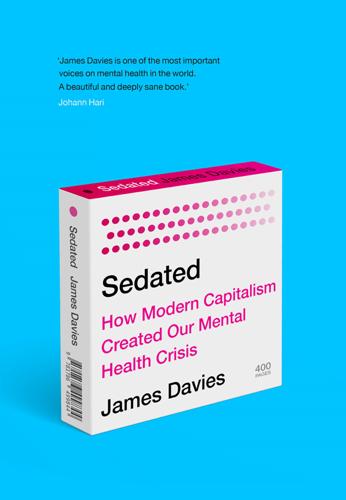
SEDATED: How Modern Capitalism Created Our Mental Health Crisis
by
James. Davies
Published 15 Nov 2021
This was undertaken by Andrea Cipriani and colleagues and was published in the prestigious medical journal The Lancet.32 This study assessed the largest number of antidepressant clinical trials yet assembled to try to settle the debate, once and for all, as to whether antidepressants worked better than placebos (sugar pills). While we already knew that for mild to moderate depression they worked, on average, no better than placebos (despite millions of mildly and moderately depressed people being prescribed them each year),33 Cipriani’s study concluded that, for the minority of patients classed as severely depressed, they did in fact work a little better than placebos.
…
This issue is particularly relevant for the approval of antidepressants, as negative trials have been common (almost half of all trials into antidepressants have turned out to be negative). If we include this negative trial data in overall assessments of antidepressant efficacy, they show that antidepressants are only slightly more effective than sugar pills – and that is only for around 15 per cent of people taking them (the most severely distressed). For the rest of patients they are no more effective than placebos.12 These facts were unearthed not by the regulator, but by independent researchers, who included in their large meta-analyses the negative data buried by the industry and ignored by the regulator.13 Second, the MHRA does not require a company to prove that its new drug is more effective than the most effective drug of that class already on the market.
…
This approach, while held as the gold standard in mental health services, would in truth lead to little other than the illusion of understanding for doctors, and stigma and self-stigma for patients, while the medications themselves, although helpful for some of the more severely distressed in the short term, were in the long term holding people back. Furthermore, their effects ended up confusing us all: what experience was drug-induced and what the product of the person or the condition? After some time, nobody would really know any more, patient, psychologist or doctor. 3 This evidence explains not only why placebos (i.e. sugar pills) work as well as antidepressants for most people (they work because they are administered through a doctor/patient relationship), but also why it is the quality of relationship developed between professional and patient (irrespective of the intervention being deployed) that best predicts how well a person will recover. 4 From the 1960s onwards, research into what has been called ‘equivalence’ had a seminal affect on psychotherapy.
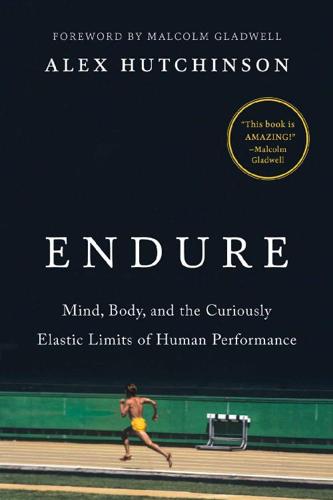
Endure: Mind, Body, and the Curiously Elastic Limits of Human Performance
by
Alex Hutchinson
Published 6 Feb 2018
In 2013, physiologists Shona Halson and David Martin of the Australian Institute of Sport wrote an editorial in the International Journal of Sports Physiology and Performance in which they argued for a distinction between placebos and “belief effects”—valuable opportunities to improve athlete performance, which should be enhanced and harnessed rather than suppressed.4 After all, if a metaphorical sugar pill makes you faster and enables you to win a race, who cares if the effects were all in your head? In fact, Halson and Martin argued, the boundary between “real” ergogenic (performance-enhancing) aids and “fake” belief effects is much fuzzier than most people, even scientists, realize. They cited an observation by sports scientist Trent Stellingwerff, who also coaches athletes including his wife, Hilary, a two-time Olympic 1,500-meter runner.
…
In theory, combining all these approaches should create a superathlete; in practice, studies that combine multiple interventions in elite athletes tend to see overall improvements of . . . 1 to 3 percent. If 1 + 1 + 1 = 1, the implication is that many different “proven” training aids act, at least in part, on the same target: the brain. That’s not an argument in favor of sugar pills, Stellingwerff emphasizes. “For me, a placebo is direct trickery, giving an athlete an inert substance and saying it is something else. I’ve never done that, except in studies.” Harnessing a belief effect, on the other hand, doesn’t involve any trickery; rather, it’s “very strategically and slowly developing maximal trust, belief, and evidence with your athletes and coaches over time.”
…
Researchers at Harvard Medical School’s Program in Placebo Studies, using sham acupuncture to treat irritable bowel syndrome, found that those with the high-dopamine version of the gene were far more likely to respond strongly to the placebo treatment—further evidence that those who do respond to placebos aren’t merely imagining the effects.9 What does all this have to do with the limits of endurance? On the simplest level, taking the equivalent of a sugar pill, if you really believe it will help you race faster, will often work. Chris Beedie, a researcher at Canterbury Christ Church University in Britain who studies placebos in sport, once had a group of cyclists complete a series of ten-kilometer time trials. The subjects were told they would receive various doses of caffeine before each trial, but they wouldn’t be told which dose they had received.
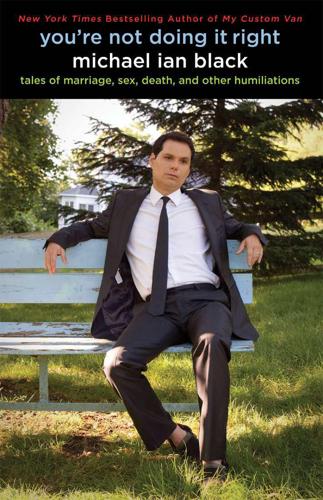
You're Not Doing It Right: Tales of Marriage, Sex, Death, and Other Humiliations
by
Michael Ian Black
Published 28 Feb 2012
Whether the drug actually does something or my brain is just gullible does not matter to me at all. Interestingly, another study just came out in the journal PLoS ONE (bad name for a medical journal) showing that placebos are still effective even when the patient knows he is taking a placebo. In other words, if a doctor gives you a sugar pill and tells you it’s a sugar pill, it can still be an effective treatment. So no, I have zero idea whether it’s the drug or my brain telling me it’s the drug; all I know is that I feel better when I am on my meds than when I am off. The other thing I’ve tried recently is booze. I know that alcohol is itself a depressive, but so many people seem to have such a good time with it that after abstaining for my first thirty-five years or so, I thought I should at least give alcohol a try to see if it made my life better and more enriching.
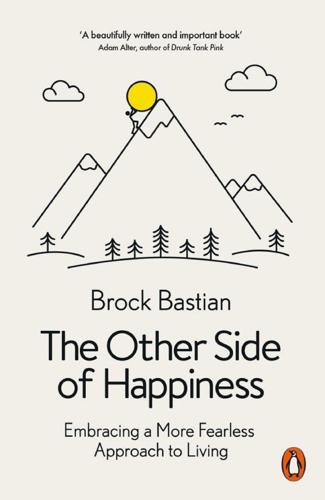
The Other Side of Happiness: Embracing a More Fearless Approach to Living
by
Brock Bastian
Published 25 Jan 2018
A particularly poignant illustration of just how much our experience of pain is based on our expectations comes from work on the placebo effect. Placebos are used in clinical trials when testing the effectiveness of a new drug. Patients will be split into two groups, with one group receiving the actual drug and the other receiving a sugar pill. These trials are generally called ‘double-blind trials’ as both the patients and researchers do not know which group is the placebo group and which is the experimental group until the end of the study, thereby reducing the possibility of bias. Researchers in these trials began to notice that patients in the placebo groups would often show significant improvement in their symptoms.
…
By using painkillers to ameliorate the threat response, and in turn a search for meaning and coherence, the design of this study can show that negative experiences do in fact motivate such efforts. Across two studies, researchers randomly assigned participants to receive either 1,000 mg of fast-acting acetaminophen or a 1,000 mg sugar pill placebo. In the first study participants then wrote about their own death – what would happen to their bodies when they died – or wrote an essay about something unpleasant but which was not existentially threatening as a control. In the second study, half the participants watched a 4-minute clip from the short film Rabbits by David Lynch, a surrealist movie producer renowned for his ability to disturb, offend or mystify audiences, often leaving them with a sense of anxiety or unease.
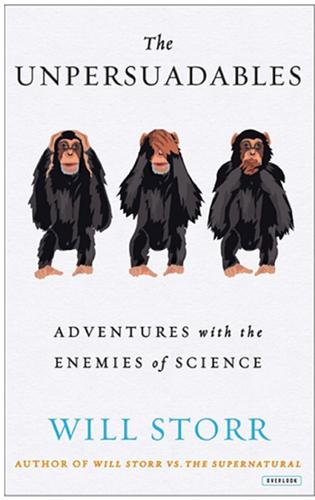
The Unpersuadables: Adventures With the Enemies of Science
by
Will Storr
Published 1 Jan 2013
This is why expensively packaged brand-name headache pills work better than their supermarket equivalents, even when the cheap ones are identical in their ingredients; why zero per cent ‘alcohol’ can make you feel drunk; why completely fake drugs can benefit the symptoms of Parkinson’s, arthritis, ulcers, hypertension, depression, panic disorders, sexual dysfunction and angina; why fake drugs can make athletes go faster, for longer and with less pain and convince asthma sufferers they’re better, even when they’re not. It is why four sugar pills work more effectively than two; why sham injections work better than sham capsules, capsules work better than pills, big pills work better than small pills; and why healing effects can be summoned from complicated but useless electrical equipment, pointless electrodes in the brain and an application of smelly brown paint.
…
‘Every day, parents of sick children are coming home from their pharmacy with fake medicine, leaving their children in distress because these manufacturers and these stores don’t want consumers to know the truth,’ he says. ‘Every reputable study of these fake drugs has shown them to have no more effect than sugar pills.’ And then the moment arrives. The crowd shouts, ‘3, 2, 1, There’s nothing in it!’ And the sound of three hundred nerds crunching nothing fills the conference hall. Marsh happily surveys the room. ‘Is anyone dead yet?’ * Skeptic after Skeptic at the Manchester conference told me the same thing.
…
Colloca, ‘Opioid-mediated placebo responses boost pain endurance and physical performance – is it doping in sport competitions?’, Journal of Neuroscience, 31 October 2007. 42 convince asthma sufferers they’re better: Michael E. Wechsler, M.D. et al., ‘Active Albuterol or Placebo, Sham Acupuncture, or No Intervention in Asthma’, New England Journal of Medicine, 14 July 2011. 42 four sugar pills: D. E. Moerman, ‘Cultural variations in the placebo effect: ulcers, anxiety & blood pressure’, Medical Anthropology Quarterly, 2000. 42 sham injections work better: A. J. de Craen, J. G. Tijssen, J. de Gans and J. Kleijnen, ‘Placebo effect in the acute treatment of migraine: subcutaneous placebos are better than oral placebos’, Journal of Neurology, March 2000. 42 capsules work better: M.
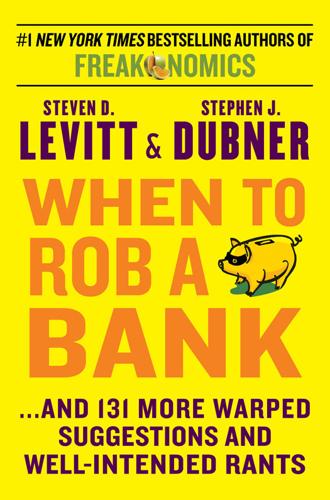
When to Rob a Bank: ...And 131 More Warped Suggestions and Well-Intended Rants
by
Steven D. Levitt
and
Stephen J. Dubner
Published 4 May 2015
Every time a memoir is exposed as a fake, you hear people say, “Well, if it’s such a good story, why didn’t they just publish it as a novel instead?” But I think reasons one to three above, and maybe many more, incentivize authors, publishers, and others to favor the memoir over the novel. With number three in mind, and having read recently about how an expensive sugar-pill placebo works better than a cheap sugar-pill placebo, I thought of a fun memoir/novel experiment. Here’s what you’d do: Take an unpublished manuscript that tells an intense and harrowing story from a first-person perspective. Something along the lines of A Million Little Pieces or Love and Consequences. Assemble a group of one hundred volunteers and randomly divide them in half.
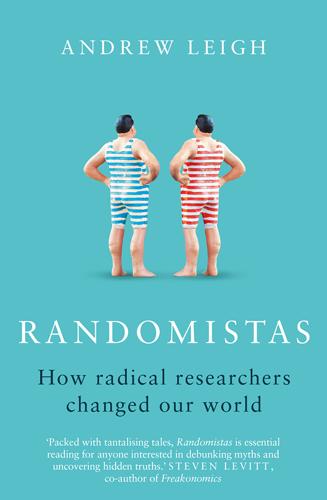
Randomistas: How Radical Researchers Changed Our World
by
Andrew Leigh
Published 14 Sep 2018
In each case, those taking the new drug are compared against people taking a fake drug. The word ‘placebo’ comes from the Latin placere, meaning ‘to please’. It reflects the fact that people can respond differently when they receive what they believe is an effective treatment. When medical researchers see a change in outcomes among people who have only taken sugar pills, they call it ‘the placebo effect’. Early research on the placebo effect turns out to have overstated the power of placebos, wrongly conflating the natural tendency of patients to recover with the impact of placebos. Modern researchers now doubt that the placebo effect actually helps our bodies heal faster.
…
If we simply compare patients who take a pill with those who do not, then we might wrongly attribute the impact entirely to the active ingredients in the tablet. By contrast, a well-designed randomised trial strips out the placebo effect – for example, by comparing pain levels among patients who are given white sugar pills with pain levels among patients who are given identical-looking white aspirin tablets. * Patients with severe emphysema used to be treated with lung volume reduction surgery, until a randomised trial showed that it significantly increased the risk of death.41 After minor strokes, neurosurgeons would once routinely perform an extracranial to intracranial bypass (connecting an artery outside the skull with one inside the skull).
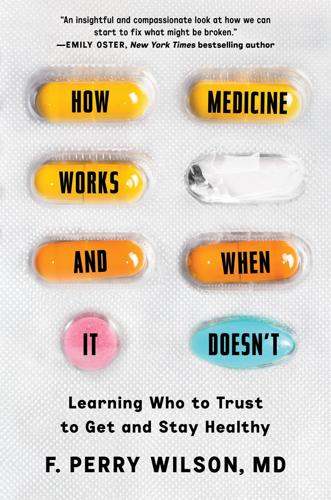
How Medicine Works and When It Doesn't: Learning Who to Trust to Get and Stay Healthy
by
F. Perry Wilson
Published 24 Jan 2023
In other words, the conclusions are wrong from the start. Let’s say I want to test whether my new pill to reduce depression is effective. To ensure the integrity of my study, I decide to call the people randomized to take the pill every day to make sure they aren’t having side effects that could be troubling. Since the placebo is just a sugar pill, I don’t bother calling the participants assigned to a placebo. As you might expect, I would be hard-pressed to conclude that any difference in depression scores I observe between the groups is due to my pill. Couldn’t it be because they got a phone call from a concerned doctor every day, checking in on them?
…
And while we discussed in chapter 3 how we can all be led astray by “one thing” medicine, there is still the implicit belief that when we have to make a choice between options, there is a right one and a wrong one. Really, all of medical science is about trying to figure out what the right choice is in a given clinical scenario. Even studies that compare a new drug to a sugar pill are implicitly studying a choice: Is taking this drug better than doing nothing? (Often, the answer is no, and the drug does not make it to pharmacy shelves.) But medical studies look at groups of people, and you are not a group. You are an individual. Making good medical decisions doesn’t always mean doing what has the best chance of success, on average, because you are not average.
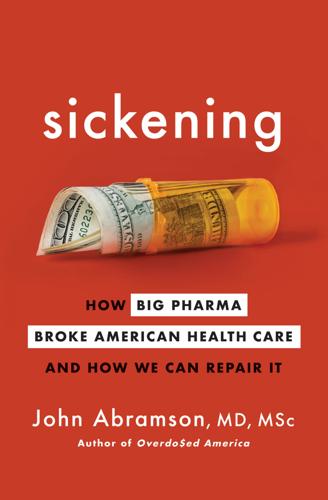
Sickening: How Big Pharma Broke American Health Care and How We Can Repair It
by
John Abramson
Published 15 Dec 2022
What the study actually showed was that there was not a significant difference between the improvement in the Neurontin and placebo groups, and therefore using Neurontin to treat patients with painful diabetic neuropathy was unlikely to be helpful. The study had been designed to investigate Neurontin’s effectiveness in treating pain (that was the “primary outcome measure”), and the results showed exactly what Dr. Gorson had written in his original report: that Neurontin was “probably no more effective” than a sugar pill to treat pain. But in Pfizer’s account of the study, there was no mention that a placebo group had shown similar results, so doctors could be tricked into believing the pain reduction in the people treated with Neurontin was due to the drug when it might just as well have been the placebo effect combined with the tincture of time.
…
“fraudulent marketing”: Thomas Sullivan, “Supreme Court Rejection of Pfizer’s Request for RICO Off Label Review: Could Open Floodgate of Cases,” Policy and Medicine, May 6, 2018, https://www.policymed.com/2014/01/supreme-court-rejection-of-pfizers-request-for-rico-off-label-review-could-open-floodgate-of-cases.html. the Gorson study: Abramson, “Expert Report,” 149. violating its own study: Abramson, “Expert Report,” 142–45. “May I interrupt you”: Abramson, “Expert Report,” 142. than a sugar pill: Abramson, “Expert Report,” 17. The study actually considered four types of pain, or four end points. Only one of these end points showed that Neurontin was significantly more effective than placebo. “have you essentially”: Abramson, “Expert Report,” 145. reduced daily pain scores: Miroslav Backonja et al., “Gabapentin for the Symptomatic Treatment of Painful Neuropathy in Patients with Diabetes Mellitus: A Randomized Controlled Trial,” Journal of the American Medical Association 280 (1998): 1831–36.
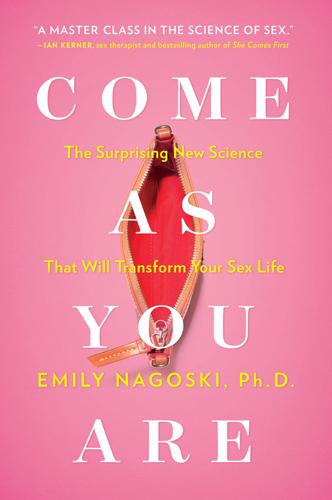
Come as You Are: The Surprising New Science That Will Transform Your Sex Life
by
Emily Nagoski Ph.d.
Published 3 Mar 2015
The Power of Context Erectile dysfunction drugs don’t improve women’s sexual functioning, but they do have one of the strongest placebo effects observed in medical research. Around 40 percent of participants in the placebo group of a clinical trial of sexual dysfunction medication report that the “drug”—actually a sugar pill—improved their sex lives; this is a response size so large that one particularly brilliant study reported only the effects of an eight-week “treatment” with a placebo.2 This is just one small hint at the power of context in shaping our sexual experience, which we’ll discuss in chapter 3. turn on the ons, turn off the offs Allow me to introduce you to the dual control model.
…
Where we focus our attention is part of context. The NAc even appears to be important in placebo studies (Zubieta and Stohler, “Neurobiological Mechanisms of Placebo Responses; Tracey, “Getting the Pain You Expect”). Remember the placebo effect from chapter 2—about 40 percent of people taking a sugar pill that they are told will increase their interest in sex, do indeed experience more interest in sex. I expect that future research will find that the nucleus accumbens is involved in that effect. 15. Berridge and Kringelbach, “Neuroscience of Affect,” 295. 16. Jaak Panksepp and Lucy Bevin (Archaeology of Mind ) include in their taxonomy of the limbic brain SEEKING, RAGE, FEAR, LUST, CARE, PANIC/GRIEF, and PLAY.
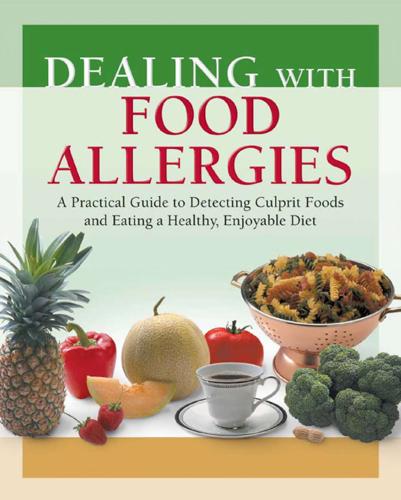
Dealing With Food Allergies: A Practical Guide to Detecting Culprit Foods and Eating a Healthy, Enjoyable Diet
by
Janice Vickerstaff Joneja
Published 31 Mar 2003
The only accurate way that clinicians can determine a person’s reactivity to a food, beverage, or food additive is by eliminating the food from the diet, followed by challenge (reintroducing the food) under conditions in which neither the doctor nor the patient knows whether he or she is eating the test food or the placebo (sugar pill). This is known as the double-blind placebo-controlled food challenge (DBPCFC). Unfortunately, this process is too expensive and time-consuming to be a routine procedure. However, based on the statistics that are available, it is usually accepted that food allergy occurs in up to 8% of children under the age of five years, and that 2% of children in this age group have an allergic reaction to cow’s milk proteins.
…
Peptides joined together form a protein. phagocyte White blood cell that is able to engulf and digest microorganisms, cells, cell debris, and other small particles. phagocytosis Process of engulfment and digestion of microorganisms and other small foreign particles by white blood cells called phagocytes. placebo A “dummy” medication or nonreactive material that will not cause a response in the body; sometimes called a “sugar pill.” plasma Fluid portion of blood in which blood cells are suspended. plasma cell Cell, derived from a B-cell lymphocyte that produces antibody. platelet (thrombocyte) Disc-shaped blood cell principally involved in coagulation. platelet activating factor (PAF) Phospholipid produced by leukocytes (white blood cells) that causes aggregation of platelets and other effects such as an increase in permeability (ease of movement of contents in and out) of blood vessels and bronchoconstriction (constriction of airways in the lung causing wheezing, as in asthma). polymorphonuclear granulocyte (polymorph, granulocyte) White blood cell distinguished by a lobed nucleus and fine granules within its cytoplasm.
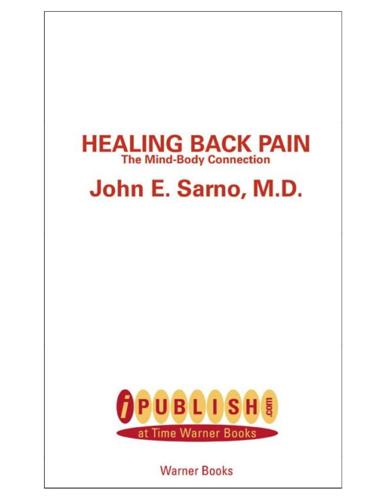
Healing_Back_Pain__The_Mind.pdf
by
Unknown
Before we get into this lets review once more the subject of the placebo effect because 120 The Traditional (Conventional) Treatments 121 of its crucial importance in any discussion of treatment. THE PLACEBO EFFECT A placebo is any treatment that produces a good therapeutic result despite the fact it has no intrinsic therapeutic value. A sugar pill is the classic example. It is clear that the desirable outcome must be attributed to the ability of the mind to manipulate the various organs and systems of the body. In order to do this the mind must believe in the efficacy of the treatment and/or the treater. The key concept here is beliefthe patient must have blind faith.
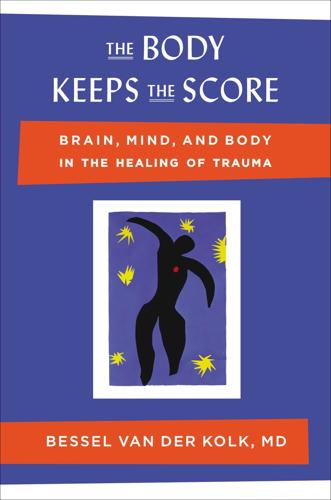
The Body Keeps the Score: Brain, Mind, and Body in the Healing of Trauma
by
Bessel van Der Kolk M. D.
Published 7 Sep 2015
But maybe the mother’s kisses that soothe her child’s scrapes are “just” a placebo as well. Prozac worked significantly better than the placebo for the patients from the Trauma Clinic. They slept more soundly; they had more control over their emotions and were less preoccupied with the past than those who received a sugar pill.20 Surprisingly, however, the Prozac had no effect at all on the combat veterans at the VA—their PTSD symptoms were unchanged. These results have held true for most subsequent pharmacological studies on veterans: While a few have shown modest improvements, most have not benefited at all. I have never been able to explain this, and I cannot accept the most common explanation: that receiving a pension or disability benefits prevents people from getting better.
…
The trauma had lost its immediacy and become a story about something that happened a long time ago. We subsequently secured funding from the National Institutes of Mental Health to compare the effects of EMDR with standard doses of Prozac or a placebo.2 Of our eighty-eight subjects thirty received EMDR, twenty-eight Prozac, and the rest the sugar pill. As often happens, the people on placebo did well. After eight weeks their 42 percent improvement was greater than that for many other treatments that are promoted as “evidence based.” The group on Prozac did slightly better than the placebo group, but barely so. This is typical of most studies of drugs for PTSD: Simply showing up brings about a 30 percent to 42 percent improvement; when drugs work, they add an additional 5 percent to 15 percent.
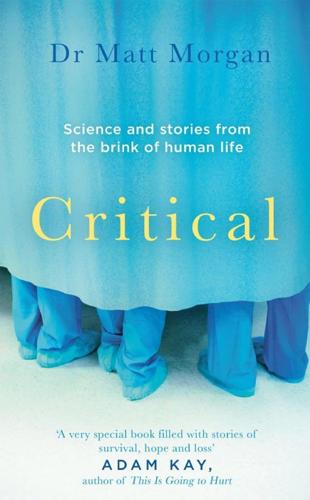
Critical: Science and Stories From the Brink of Human Life
by
Matt Morgan
Published 29 May 2019
The ‘Winter Crisis’ is now simply ‘The Crisis’ as countless newspaper articles report. So why, as rotas remain understaffed for the number of patients, do I sit in my office planning research studies? Why am I not out there working alongside my colleagues instead of running intensive care clinical trials? Why is scarce money being spent on placebo sugar pills that do nothing? Some think that under such pressurised conditions, medical research is simply a nice added extra, only to be explored when the system is already performing well. They would be wrong. Research matters to patients, staff, and to healthcare. This is particularly the case in intensive care medicine where as few as one in ten of our treatments are based on the highest quality evidence.
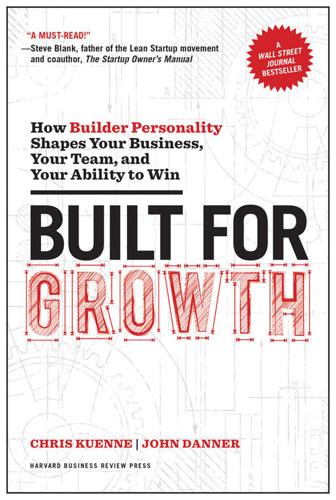
Built for Growth: How Builder Personality Shapes Your Business, Your Team, and Your Ability to Win
by
Chris Kuenne
and
John Danner
Published 5 Jun 2017
Each weekend for more than a year, they would brainstorm additions to a list of potential near-term health-care problems, which they believed they could build a company to solve. They finally emerged with a novel way to enhance the accuracy of clinical trials for new psychotropic drugs (think Prozac). These drugs are very expensive to create. Clinical testing of these new compounds often fails to isolate the therapeutic effect from a placebo (sugar pill). Gilbert, the orchestrator of the venture, assembled a team of experts, created an environment of collaboration, and developed and commercialized a method to solve this seemingly intractable problem. The story of Gilbert and his cofounder building MedAvante reveals three common tendencies of the Captain: organize a talented team; use a methodical, fact-based approach; and focus on material economic problems that represent a near-term business opportunity.
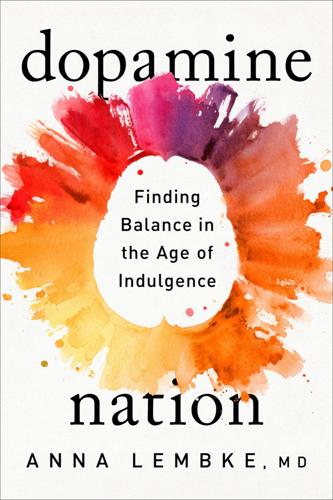
Dopamine Nation: Finding Balance in the Age of Indulgence
by
Anna Lembke
Published 24 Aug 2021
The opioid receptor blocker naltrexone is currently being explored as a medical treatment for chronic pain. The idea is that by blocking the effects of opioids, including the ones we make (endorphins), we trick our bodies into making more opioids as an adaptive response. Twenty-eight women with fibromyalgia took one pill of low-dose naltrexone (4.5 milligrams) a day for twelve weeks, and a sugar pill (placebo) for four weeks. Fibromyalgia is a chronic pain condition of unknown etiology thought possibly to be related to an individual’s innate lower threshold for tolerating pain. The study was double-blind, meaning that neither the women participating in the study nor the health care team knew which pill they were taking.

How Emotions Are Made: The New Science of the Mind and Brain
by
Lisa Feldman Barrett
Published 6 Mar 2017
When you are expecting pain, like the moment just before an injection, your brain regions that process nociception change their activity. That is, you simulate pain and therefore feel it. This phenomenon is called the nocebo effect. You’re probably more familiar with its counterpart, the placebo effect, which relieves pain using a medically ineffective treatment like a sugar pill. If you believe you’ll feel less pain, your beliefs influence your predictions and tune down your nociceptive input so you do feel less pain. Both placebos and nocebos involve chemical changes in the brain regions that process nociception. These chemicals include opioids that relieve pain and work similarly to morphine, codeine, heroin, and other opiate drugs.
…
[back] 17. sensations and made them meaningful: For an example of body-budgeting regions processing nociceptive prediction errors, see Roy et al. 2014. [back] 18. process nociception change their activity: E.g., Wiech et al. 2010. For a review, see Tracey 2010; Wager and Atlas 2015. treatment like a sugar pill: Büchel et al. 2014; Tracey 2010; Wager and Atlas 2015. and other opiate drugs: Opioids are not the only neurotransmitters responsible for the placebo effect. Also involved is cholecystokinin (CCK), which acts on endogenous cannabinoid receptors in your brain, the same as marijuana. CCK tunes up nociception, whereas opioids tune it down (Wager and Atlas 2015).
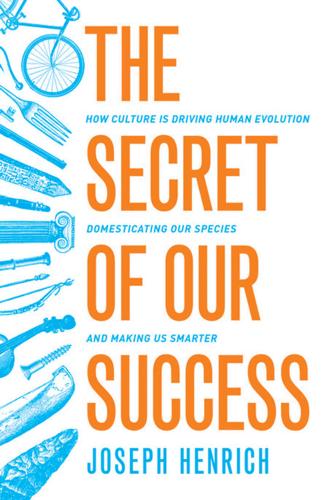
The Secret of Our Success: How Culture Is Driving Human Evolution, Domesticating Our Species, and Making Us Smarter
by
Joseph Henrich
Published 27 Oct 2015
Chemically Inert but Biologically Active Placebos open a window on culture and biology. Most people have heard about placebos in the context of testing new medicines. In a randomized control trial, one randomly assigned group gets the drug under testing and the other group gets a sugar pill or other inert substance. Both groups are told they will get either the drug or the placebo (sugar pill) based on a coin flip, but they don’t know which. The common assumption is that this addresses any response bias, which might cause people to inaccurately report getting better or worse based on their opinions about the drug in question. Since the placebo is chemically inert, it can’t actually “do” anything, right?
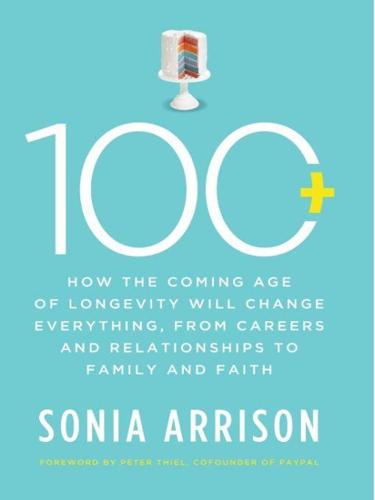
100 Plus: How the Coming Age of Longevity Will Change Everything, From Careers and Relationships to Family And
by
Sonia Arrison
Published 22 Aug 2011
Carnes in their book The Quest for Immortality, “is that by reasserting control over the mind, the supernatural power taken by God could be restored.” 11 This idea of mind over matter was, and still is, shared by many as powerful medicine and certainly isn’t limited to the religious sphere. The very fact of a placebo effect, in which people’s symptoms subside simply because they think they are taking a drug when they are instead taking a sugar pill (the placebo), is a reminder of how powerful the mind can be. Such power led Irish writer George Bernard Shaw to advocate for the Lamarckian idea that characteristics could be acquired and passed down through generations. Hence, a giraffe’s neck evolved over time, he reasoned, as members of each generation reached up, willing themselves to get the leaves on higher and higher branches.
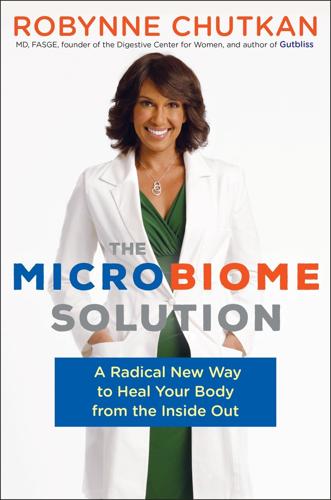
The Microbiome Solution
by
Robynne Chutkan M.D.
Published 5 Aug 2015
I still have a prescription pad, but I try to use it as little as possible—not because the drugs don’t work but because risks like infection and cancer and the fact that many of these drugs cross the placenta and are present in breast milk tend to outweigh the benefits for the more effective therapies. The less potent drugs have fewer side effects, but they also don’t work as well—in fact, some have a response rate that’s the same as treatment with a placebo, or sugar pill! Interestingly, we use the same pool of drugs to treat IBD that we employ for other autoimmune conditions such as rheumatoid arthritis and psoriasis, and the dietary therapy that works so well for our patients’ intestinal problems frequently improves their other coexisting autoimmune problems, suggesting a common mechanism of causation and cure.
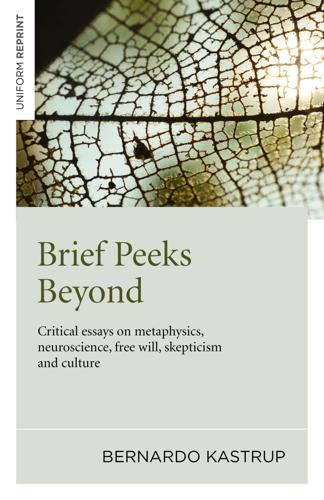
Brief Peeks Beyond: Critical Essays on Metaphysics, Neuroscience, Free Will, Skepticism and Culture
by
Bernardo Kastrup
Published 28 May 2015
Here is where the art and skill of the healer comes into play, for this ‘dropping in’ must be accomplished through bypassing egoic barriers and defense mechanisms. A form of benign manipulation is required, which may conflict with present-day notions of ethics. A case in point is the so-called placebo effect. Current practice in approving new drugs and treatments is that they must be demonstrated to be more effective than the proverbial ‘sugar pills.’ A serious problem for the pharmaceutical industry is the growing effectiveness of placebos in combating illness, which makes new drugs increasingly more difficult to approve.182 The elephant in the room, obviously, is that placebos work, and more so in recent years. Clearly, through the power of suggestion and a form of benign egoic manipulation, a real effect is produced in the patient’s personal obfuscated psyche; an effect whose image is renewed bodily health.
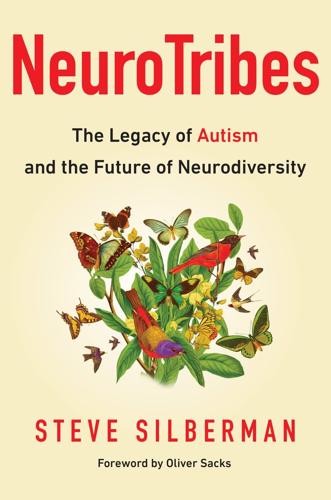
NeuroTribes: The Legacy of Autism and the Future of Neurodiversity
by
Steve Silberman
Published 24 Aug 2015
In the pharmaceutical industry, the gold standard of drug development is the so-called double-blind placebo-controlled trial. Volunteers are randomly assigned to receive either the active drug or an inert placebo, and neither the volunteers nor the experimenters are aware of who is getting the real drug and who is getting the equivalent of sugar pills. Inevitably, both groups of patients will show some improvement because of a phenomenon known as the placebo effect. At the root of the placebo effect is the fact that the attention of medical professionals, in an environment of care, produces beneficial changes in the mind and body of the patient even in the absence of an active drug.
…
Researchers like Ted Kaptchuk at Harvard and Fabrizio Benedetti at the University of Milan have discovered that the mere act of swallowing a pill triggers cascades of hormones and neurotransmitters that can reduce pain and inflammation, enhance motor coordination, boost brain activity, lift mood, and improve digestion. These effects are pervasive, as if the body contains a self-healing network that is activated by the knowledge that one is receiving care. (Exercise and meditation also prompt this network into action.) While no one has ever cured cancer or dispelled pneumonia with a sugar pill, powerful placebo effects have been observed in an astonishingly broad range of conditions, from Parkinson’s and hypertension to chronic depression and Crohn’s disease. In placebo-controlled trials, if the volunteers in the placebo group and the experimental group show comparable amounts of benefit, the FDA judges the drug to be ineffective—often at the cost of tens of millions of dollars to the company that spent years developing it.
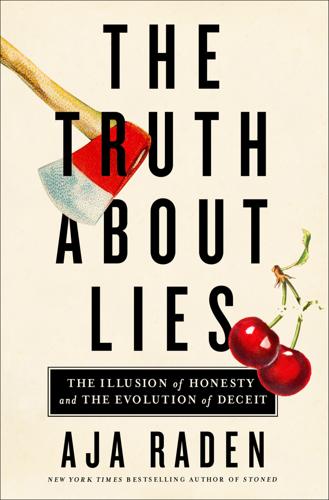
The Truth About Lies: The Illusion of Honesty and the Evolution of Deceit
by
Aja Raden
Published 10 May 2021
And stranger still, it wasn’t just the new, exciting CNS-regulating drugs—the kind they were all racing to develop that were failing the trials, but also the old tried-and-true drugs—the drugs they’d been selling for ten, fifteen, or twenty years. Suddenly, all the drugs were increasingly failing to do any better than a sugar pill in double-blind trials. It was a broad, confusing phenomenon; old and new antidepressants were failing seven out of ten times and being abandoned without being manufactured.29 There was nothing wrong with the drugs themselves; it was almost as if “the powerful placebo,” as Beecher’s seminal 1955 article had called it, was somehow becoming more powerful.
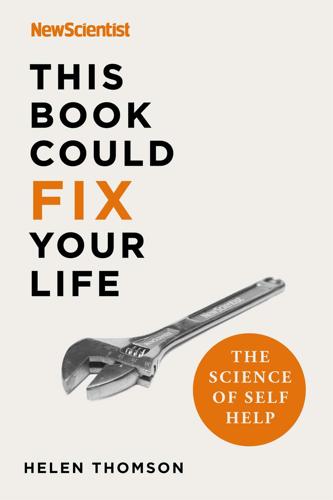
This Book Could Fix Your Life: The Science of Self Help
by
New Scientist
and
Helen Thomson
Published 7 Jan 2021
We now have solid evidence that the reverse is also true: with the right mindset you can think yourself faster, fitter, slimmer – and younger. It’s all to do with the placebo effect. Placebos are inert treatments used in clinical trials to test how effective a drug is. You divide your volunteers randomly into two identical groups, giving half a real drug and the other a sugar pill. With no active ingredients the placebo shouldn’t have any effect. Yet many studies have shown that placebos can often bring about significant changes, triggering the release of natural painkillers and lowering blood pressure, for example – all because of people’s expectations. The mind is so mysterious that these effects can occur even when people are told they are taking a placebo.
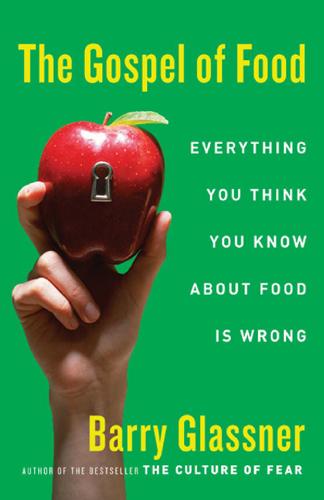
The Gospel of Food: Everything You Think You Know About Food Is Wrong
by
Barry Glassner
Published 15 Feb 2007
Obtaining dependable information is difficult enough in our own nation of 288 million inhabitants, never mind in a country with more than four times as many people, many of whom live in rural areas with lower rates of literacy.31 Optimally, the effects of diet would be assessed the same way drugs are tested, through experiments in which some people are given the substance in question while others take sugar pills, and neither group knows which it has received. Obviously, that sort of study is close to impossible when it comes to diet. False Prophets 19 You can’t give one person a T-bone and another tofu and have them believe they are eating the same thing. The closest that nutrition researchers come to randomized trials are experiments in which they assign people to eat particular foods rather than give them free choice.
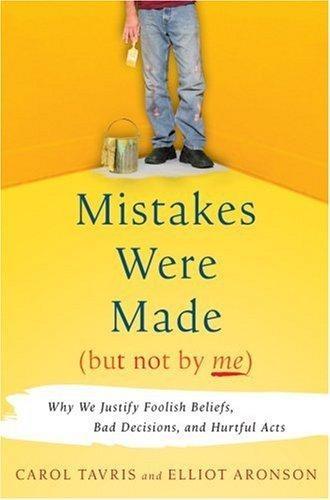
Mistakes Were Made (But Not by Me): Why We Justify Foolish Beliefs, Bad Decisions, and Hurtful Acts
by
Carol Tavris
and
Elliot Aronson
Published 6 May 2007
Most people understand the importance of control groups in the study of a new drug's effectiveness, because without a control group, you can't say if people's positive response is due to the drug or to a placebo effect, the general expectation that the drug will help them. For instance, one study of women who had complained of sexual problems found that 41 percent said that their libido returned when they took Viagra. So, however, did 43 percent of the control group who took a sugar pill.18 (This study showed conclusively that the organ most involved in sexual excitement is the brain.) Obviously, if you are a psychotherapist, you can't randomly put some of your clients on a waiting list and give others your serious attention; the former will find another therapist pronto. But if you are not trained to be aware of the benevolent-dolphin problem, and if you are absolutely, positively convinced that your views are right and your clinical skills unassailable, you can make serious errors.
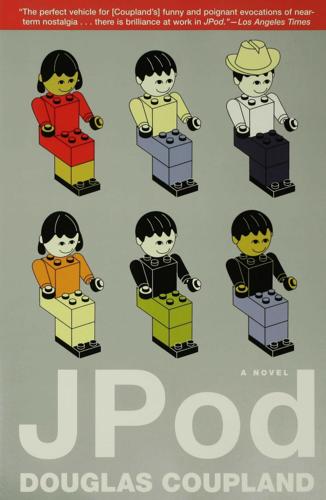
JPod
by
Douglas Coupland
Published 30 Apr 2007
Afterwards, we weighed Mom's crop and bagged it. Back at my place, around midnight, Kaitlin and I found Kam Fong leaving with a suitcase. He was moving out. "Kam—no—we'll miss you." We really would. "I'm not going far. Your brother just found me this great house in West Van—up on the hill. A bargain, too—the owner got nailed for shipping sugar pills to American seniors who thought they were buying Gleevec and OxyContin. Got it for peanuts. It's got a commanding city view, two karaoke rooms and it's been feng-shuied by a Grand Master." This was about as excited as Kam gets. Kaitlin asked if Kam would have bought it if it hadn't been feng-shuied.
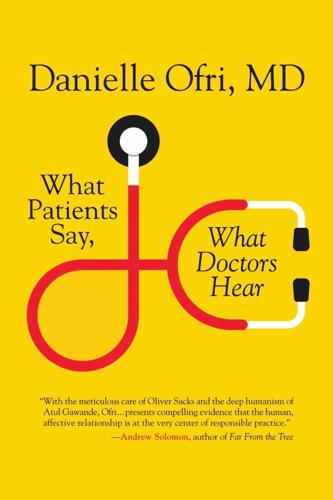
What Patients Say, What Doctors Hear
by
Danielle Ofri
Published 1 Feb 2017
The rituals the doctors performed—coming to the bedside, acknowledging the patients’ pain, drawing up the medication, visibly injecting it into the IV, and discussing the expected benefits, not to mention the attention and caring that comes with the presence of an actual human being—effected as much pain relief as doubling the dose of the medication. Kaptchuk describes placebo not as the traditional sugar pill but as “everything that surrounds a medical treatment”: how caregivers describe the medication, how they administer it, the expectations they offer for the medicine, their tone of voice, their words of connection, their strength of eye contact. In short, everything that doctors and nurses do in an interaction with a patient.
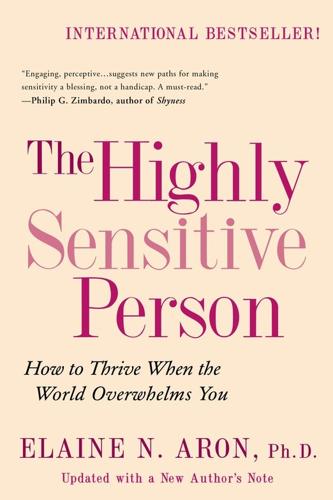
The Highly Sensitive Person: How to Thrive When the World Overwhelms You
by
Elaine N. Aron
Published 1 Dec 2013
Third, a smaller point can be taken care of right now—the discussion in the book of antidepressants, which focused on Prozac. Medications for treating depression have proliferated since 1996, as have the pros and cons about them. Do they damage the rest of the body? Are they just placebos for most people, making them feel good to the same degree as if they had been given a sugar pill? But what about many suicides they have surely prevented? Haven’t they also improved the lives of people close to those who are no longer depressed? The arguments on both sides are still there, both worth understanding. Thankfully these are now all on the Internet somewhere (but stick to reading about scientific research—skip the horror stories, on either side).

The End of Secrecy: The Rise and Fall of WikiLeaks
by
The "Guardian"
,
David Leigh
and
Luke Harding
Published 1 Feb 2011
And he replied that Sweden was a good place to bring up a child. She looked at him, shocked.” According to her testimony he added, flippantly, that they could call the baby “Afghanistan”. The police report adds a strange and disturbing remark from Katrin: “He also said he often carried abortion pills but that they were actually sugar pills.” Whatever did he mean? Assange often seemed curiously proud of his prowess in paternity: he told friends during this time period that he had recently impregnated a Korean woman he met in Paris, and she was about to give birth. This single night he spent with Katrin is the basis of a rape charge against Assange.
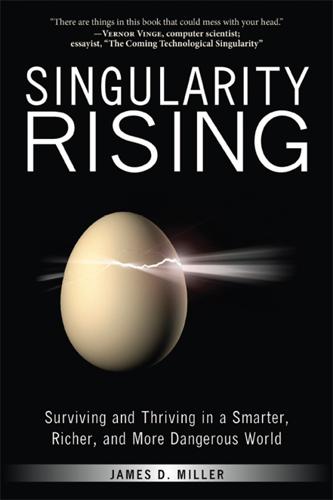
Singularity Rising: Surviving and Thriving in a Smarter, Richer, and More Dangerous World
by
James D. Miller
Published 14 Jun 2012
This 15 percent improvement comes from both the inherent medical value of the pill and the placebo effect. B. If you took a real drug and were told that there was a 50 percent chance that it was real (as is the case when you participate in a double-blind drug trial), then you would experience a 10 percent performance improvement.265 C. If you took a sugar pill and were told that there was a 50 percent chance that it was real, then you would experience a 4 percent performance improvement, all of it coming from the placebo effect. A double-blind test would compare the performance improvements in (B) and (C) and claim that the drug yielded a 6 percent improvement.
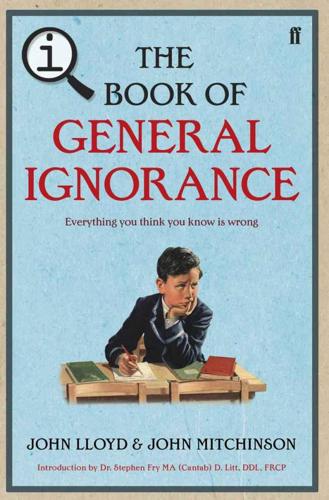
QI: The Book of General Ignorance - The Noticeably Stouter Edition
by
Lloyd, John
and
Mitchinson, John
Published 7 Oct 2010
According to Science News, placebos are more effective at curing depression than either drugs or herbal remedies. In a series of trials carried out between 1979 and 1996, Seattle psychiatrist Dr Arif Khan found that St John’s Wort completely cured 24 per cent of cases, the anti-depressant drug Zoloft cured 25 per cent of cases, but the sugar-pill placebos effected a complete cure in 32 per cent of patients. In a more recent study comparing the anti-depressants Prozac and Efexor with placebos, the drugs won with a 52 per cent cure rate, but the placebos still scored impressively with 38 per cent. But as soon as the deception was revealed, the patients’ condition worsened rapidly.
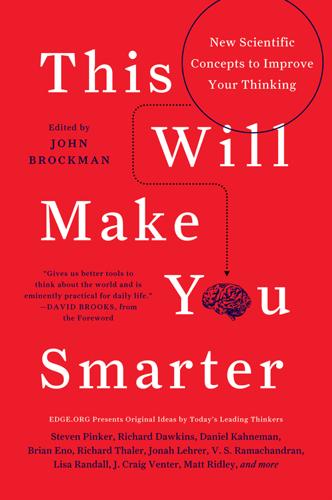
This Will Make You Smarter: 150 New Scientific Concepts to Improve Your Thinking
by
John Brockman
Published 14 Feb 2012
One noted that the “unexpectedly” low rate of heart attacks in the control group may have contributed to failure to see a benefit from the cholesterol drug. Another study noted the “unexpected” benefit of a drug to gastrointestinal symptoms in cancer patients. But cancer patients bear an increased likelihood of lactose intolerance—and the placebo was lactose, a “sugar pill.” When the term “placebo” substitutes for actual ingredients, any thinking about how the composition of the control agent may have influenced the study is circumvented. 2. Because there are many settings in which people with a problem, given a placebo, report sizable improvement on average when they are queried (see #3), many scientists have accepted that “placebo effects”—of suggestion—are both substantial and widespread in the scope of what they benefit.
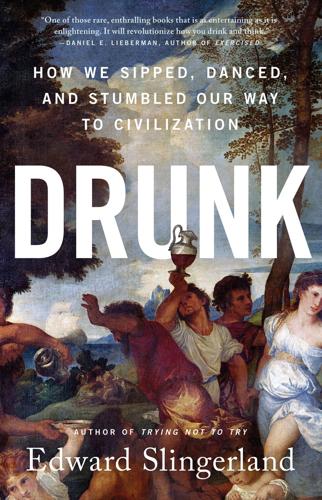
Drunk: How We Sipped, Danced, and Stumbled Our Way to Civilization
by
Edward Slingerland
Published 31 May 2021
We’ve mentioned before the expectancy effect that surrounds alcohol consumption. If you drink something expecting that it is going to make you drunk, it often makes you a little drunk, even if it’s only flavored water. This is related to the well-known placebo effect in medicine; patients who are given a sugar pill and told it is a potent medicine will often see significant health improvements. More relevant to the phenomenon of sober bars, merely thinking about alcohol, by being primed with alcohol-related keywords or shown an alcohol-related ad, can make you feel and behave a bit drunk.85 So patrons of a sober bar, despite knowing they are being served virgin cocktails, are nonetheless exposed to unconscious alcohol-related cues.
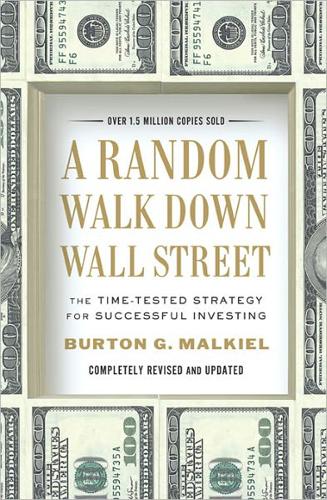
A Random Walk Down Wall Street: The Time-Tested Strategy for Successful Investing
by
Burton G. Malkiel
Published 10 Jan 2011
The point is rather that a simple buy-and-hold strategy (that is, buying a stock or group of stocks and holding on for a long period of time) typically makes as much or more money. When scientists want to test the efficacy of some new drug, they usually run an experiment in which two groups of patients are administered pills—one containing the drug in question, the other a worthless placebo (a sugar pill). The results of the administration to the two groups are compared, and the drug is deemed effective only if the group receiving the drug did better than the group getting the placebo. Obviously, if both groups got better in the same period of time, the drug should not be given the credit, even if the patients did recover.
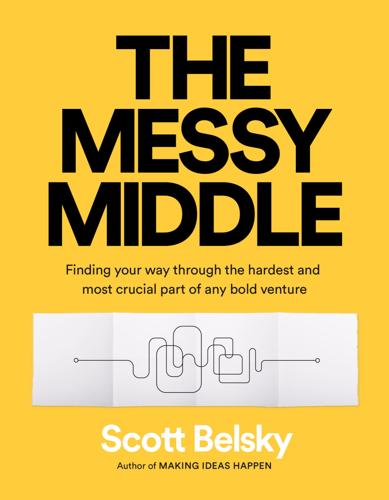
The Messy Middle: Finding Your Way Through the Hardest and Most Crucial Part of Any Bold Venture
by
Scott Belsky
Published 1 Oct 2018
During his time in the ER, he told me about the administration of a particular dosage of “OBECALP,” which was either administered intravenously or as a pill for patients suffering from the anxiety that accompanied their physical or mental afflictions. After a dose of OBECALP, most people would calm down and engage in conversation with the medical staff. OBECALP is, of course, placebo spelled backward. Over the past two decades, many clinical trials have shown that the strange effects of placebo sugar pills are getting stronger. In a 2015 study, published in the journal Pain, researchers found that in 1996 drugs relieved pain 27 percent more than a placebo. But in 2013 that gap had fallen to 9 percent. Stranger still, this effect has been observed only in the U.S., which is one reason why pharmaceutical companies are struggling to get new painkillers through trials.
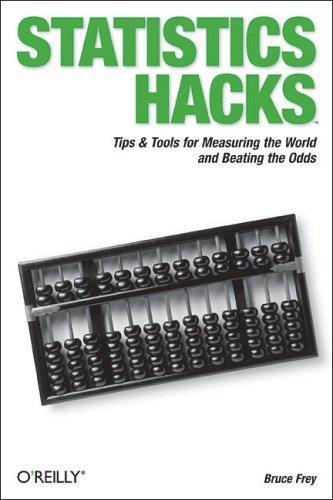
Statistics hacks
by
Bruce Frey
Published 9 May 2006
The random assignment to groups allows for researchers to assume that all groups are equal on all unmeasured variables, thus (theoretically) ruling them out as alternative explanations for any differences found. An example of this design is a drug study in which all participants randomly get either the drug being tested or a comparison drug or a placebo (sugar pill). Does Weight Cause Height? Earlier in this hack, I mentioned a well-known correlational finding: in people, height and weight tend to be related. Taller males weigh more, usually, then shorter males, for example. I laughed off the suggestion that if we fed people more, they would get tallerbecause of what I think I know about how the body grows, the suggestion that weight causes height is theoretically unlikely.
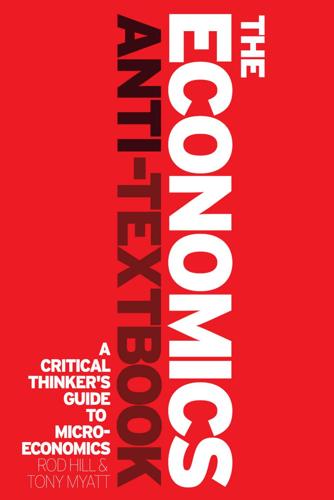
The Economics Anti-Textbook: A Critical Thinker's Guide to Microeconomics
by
Rod Hill
and
Anthony Myatt
Published 15 Mar 2010
Let’s consider a couple of examples. Example: marketing prescription drugs No one should have been too surprised when a recent study finally revealed that Prozac, the popular antidepressant taken by 40 million people, and three other drugs in its class are no more effective for most people than a placebo (a sugar pill that the patient believes is a drug). The study ‘examined all data available on the drugs, including results from clinical trials that the manufacturers chose not to publish at the time’ (Boseley 2008). While the drug companies raked in tens of billions over the decades these ineffective drugs have been on the market, patients were unknowingly exposed 83 4 | People as consumers culture in most industrialized nations is the legacy of decades of commercial marketing of infant formula, often endorsed by medical practices’, which leaves parents woefully ignorant (Beasley and Amir 2007).
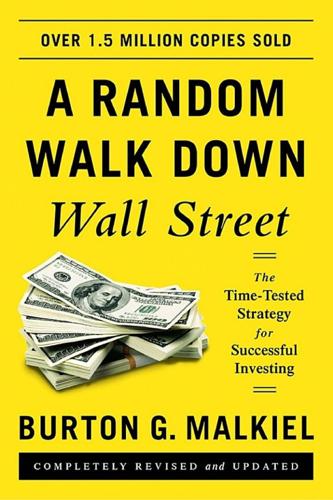
A Random Walk Down Wall Street: The Time-Tested Strategy for Successful Investing (Eleventh Edition)
by
Burton G. Malkiel
Published 5 Jan 2015
The point is rather that a simple buy-and-hold strategy (that is, buying a stock or group of stocks and holding on for a long period of time) typically makes as much or more money. When scientists want to test the efficacy of some new drug, they usually run an experiment in which two groups of patients are administered pills—one containing the drug in question, the other a worthless placebo (a sugar pill). The results of the administration to the two groups are compared, and the drug is deemed effective only if the group receiving the drug did better than the group getting the placebo. Obviously, if both groups got better in the same period of time, the drug should not be given the credit, even if the patients did recover.
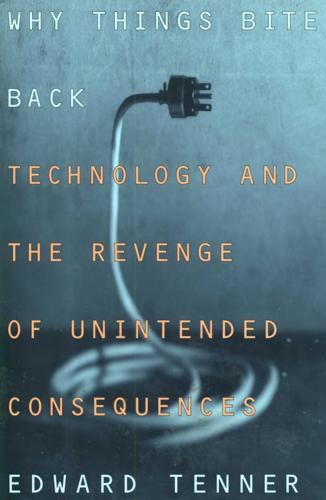
Why Things Bite Back: Technology and the Revenge of Unintended Consequences
by
Edward Tenner
Published 1 Sep 1997
Many recognize that improper drugs can cause or worsen disease. But the localization of medicine has brought a different notion of medically caused pain and harm. When medicine was supposed to treat the whole body, disruption could signify effectiveness. Medicine was expected to be bitter and painful. It was quacks who introduced sugared pills, as the medical historians Roy and Dorothy Porter have pointed out. Patients like Samuel Johnson and Paganini expressed the logic of premodern medicine in their positive view of the suffering their treatment brought. 31 Medical Technology and Its Discontents The real revenge effects of medical localization and faith in objective measurement are more subtle than futile procedures.
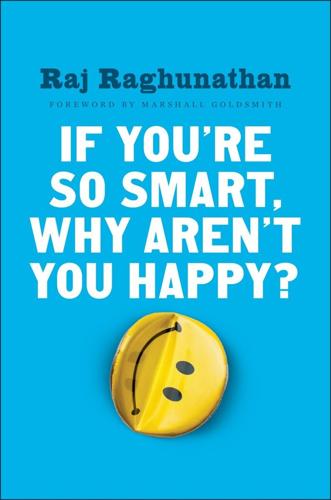
If You're So Smart, Why Aren't You Happy?
by
Raj Raghunathan
Published 25 Apr 2016
As you can see from the light dashed line in the graph, this set of patients experienced the least amount of pain—even lower than that experienced by the group that got the anesthetic! To those who are familiar with placebo effects, these results won’t come as a surprise. Placebo effects are so prevalent in medical contexts that any test of the effectiveness of a new drug involves comparing it with a control condition in which a placebo drug, like a sugar pill, is given to patients. What these placebo effects tell us is that our beliefs can shape our reality. If you think that a pill is going to cure a disease, there seems to be an objectively greater chance that it will cure the disease than if you think that it won’t. As it turns out—and here’s where it gets really interesting—placebo effects are not restricted to medical contexts; they occur in other contexts as well.
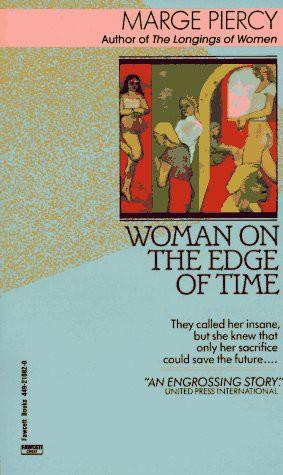
Woman On The Edge Of Time
by
Piercy, Marge
Published 1 Jan 1976
It’s so hard for a woman like her—a real Catholic, not lapsed like me, under his thumb too and him filling her with babies one right after the other—so hard for her to say, Basta ya! And go for the pill. See, she thought she went to a doctor. But he had his scientist cap on and he was experimenting. She thought it was good she got the pill free. But they gave her a sugar pill instead. This doctor, he didn’t say what he was doing. So she got heavy again with the seventh child. It was born with something wrong. She’s tired and worn out with making babies. You know you have too many and the babies aren’t so strong anymore. They’re dear to you but a little something wrong.
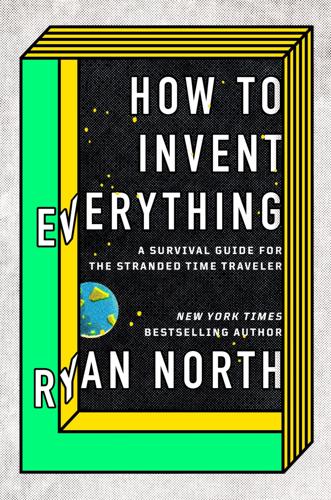
How to Invent Everything: A Survival Guide for the Stranded Time Traveler
by
Ryan North
Published 17 Sep 2018
These diseases are generally caused by living long, eating too much, and/or exercising too little: given your current circumstances, none of these are what you’d call super likely. But that does give you the upside that neither you nor the people in your civilization will likely have to worry about heart disease for a good long while! * A placebo is a treatment that looks impressive but does nothing to help cure the disease. Sugar pills, colored water swilled from a cool sciencey-looking beaker—anything works. * Heat stroke happens when too much heat causes a victim to stop sweating, have skin that’s hot to the touch, a rapid pulse, and high fever. It’s treated by getting out of the sun and cooling the victim’s body down quickly.
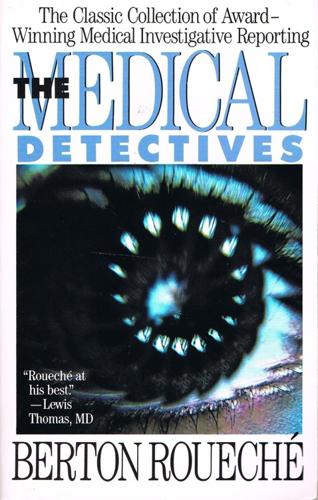
The Medical Detectives
by
Berton Roueche
Published 1 Jan 1980
I made the arrangements, and he came in, and we worked him up very thoroughly to exclude any other possibilities—liver disease, a tumor, all the rest. We found nothing. He was normal in every way but one. His serum-zinc level was down. I put him on placebos for three days. If he improved on placebos, which are nothing but sugar pills, that would strongly suggest that his problem was functional—was rooted in some emotional disturbance. There was, however, no change. Then I started him on oral zinc. It wasn't like Sergeant Mack—it wasn't in the least dramatic. But after four or five days his serum zinc began to rise. His sense of smell improved.
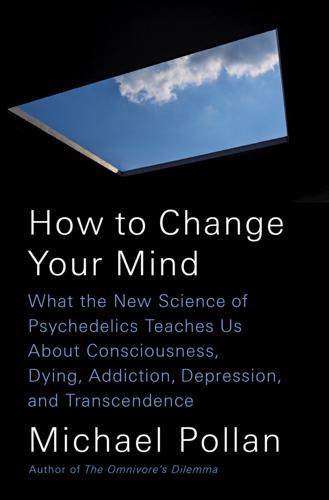
How to Change Your Mind: What the New Science of Psychedelics Teaches Us About Consciousness, Dying, Addiction, Depression, and Transcendence
by
Michael Pollan
Published 30 Apr 2018
In part this owed to Griffiths’s skepticism that a drug could occasion the same kind of mystical experience he had had in his meditation: “This is all truth to Bill and hypothesis to me. So we needed to control for Bill’s biases.” All of the volunteers were “hallucinogen naive,” so had no idea what psilocybin felt like, and neither they nor their monitors knew in any given session whether they were getting psilocybin or a placebo, and whether that placebo was a sugar pill or any one of half a dozen different psychoactive drugs. In fact the placebo was Ritalin, and as it turned out, the monitors guessed wrong nearly a quarter of the time as to what was in the pill a volunteer had received. Even years after their experiences in the trials, the volunteers I spoke to recalled them in vivid detail and at considerable length; the interviews lasted hours.
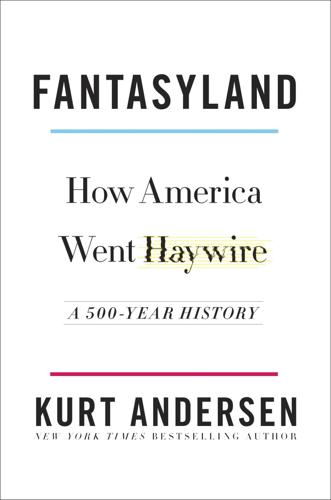
Fantasyland: How America Went Haywire: A 500-Year History
by
Kurt Andersen
Published 4 Sep 2017
Homeopathic M.D. degrees were issued by schools across the country to many thousands of homeopathic physicians. The upside was that homeopathy inherently fulfills the Hippocratic Oath: First, do no harm. Homeopathic medicines contain negligible active ingredients. If thousands of homeopaths and millions of patients, as Mark Twain said, wanted to “bribe death with a sugar pill to stay away,” that was their problem. The other two most important pseudoscientific medical protocols that excited and entranced Americans in the mid-1800s were mesmerism and phrenology. Both attracted masses of celebrated and respectable American believers. In fact, although phrenology and mesmerism were, like homeopathy, imported from Europe, their popularity and impact were larger and longer-lasting in the United States than anywhere else.
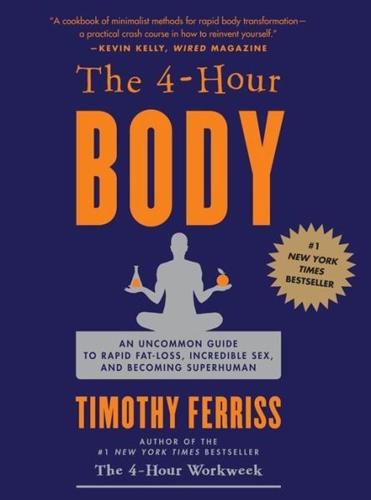
The 4-Hour Body: An Uncommon Guide to Rapid Fat-Loss, Incredible Sex, and Becoming Superhuman
by
Timothy Ferriss
Published 1 Dec 2010
This is so commonplace it is hardly worth giving an example. Next up, you could compare your drug against a useless control. Many people would argue, for example, that you should never compare your drug against placebo, because it proves nothing of clinical value: in the real world, nobody cares if your drug is better than a sugar pill; they only care if it is better than the best currently available treatment. But you’ve already spent hundreds of millions of dollars bringing your drug to market, so stuff that: do lots of placebo-controlled trials and make a big fuss about them, because they practically guarantee some positive data.
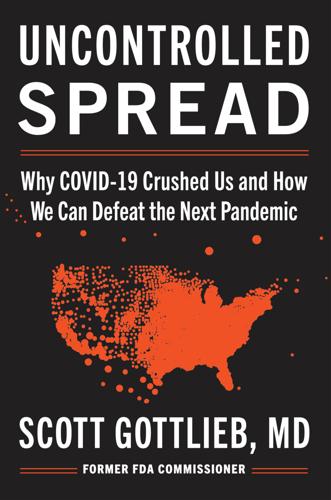
Uncontrolled Spread: Why COVID-19 Crushed Us and How We Can Defeat the Next Pandemic
by
Scott Gottlieb
Published 20 Sep 2021
Doctors don’t have time to enroll patients and follow rigid protocols when they’re overwhelmed by the daily demands of delivering medical care in a pandemic. Moreover, patients are often reluctant to enter randomized trials in which they might receive a placebo when they’re sick with a potentially fatal condition. If they’re going to take their chances with an experimental drug, they want to make sure they’re getting the actual medicine and not a sugar pill, and it’s often the drugs that show the least potential that are tested in less rigorous, open-label studies where everyone is promised the medicine. Yet in a public health crisis, it’s critical that drugs that show the most promise are prioritized and advanced more quickly. The enrollment and completion of clinical trials needs to favor the drugs with the most potential to improve outcomes.
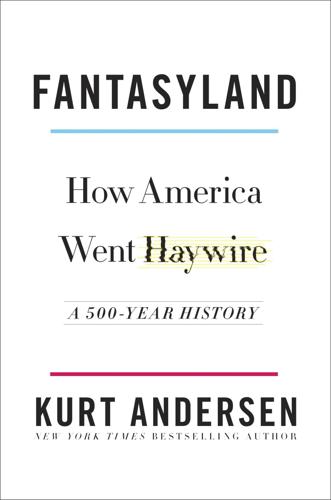
Fantasyland
by
Kurt Andersen
Published 5 Sep 2017
Homeopathic M.D. degrees were issued by schools across the country to many thousands of homeopathic physicians. The upside was that homeopathy inherently fulfills the Hippocratic Oath: First, do no harm. Homeopathic medicines contain negligible active ingredients. If thousands of homeopaths and millions of patients, as Mark Twain said, wanted to “bribe death with a sugar pill to stay away,” that was their problem. The other two most important pseudoscientific medical protocols that excited and entranced Americans in the mid-1800s were mesmerism and phrenology. Both attracted masses of celebrated and respectable American believers. In fact, although phrenology and mesmerism were, like homeopathy, imported from Europe, their popularity and impact were larger and longer-lasting in the United States than anywhere else.
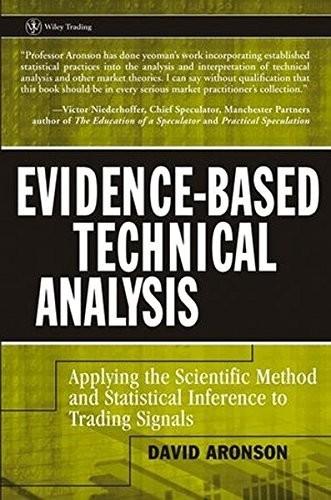
Evidence-Based Technical Analysis: Applying the Scientific Method and Statistical Inference to Trading Signals
by
David Aronson
Published 1 Nov 2006
What standard must a rule beat to be considered good? There are a number of reasonable standards. This book defines that standard as the performance of a rule with no predictive power (i.e., a randomly generated signal). This is consistent with scientific practice in other fields. In medicine, a new drug must convincingly outperform a placebo (sugar pill) to be considered useful. Of course, rational investors might reasonably choose a higher standard of performance but not a lesser one. Some other benchmarks that could make sense would be the riskless rate of return, the return of a buy-and-hold strategy, or the rate of return of the rule currently being used.

The Spirit of ST Louis
by
Charles A. Lindbergh
Published 2 Jan 1953
That was far enough away to make visiting difficult. But grand-uncle Albert lived only about three blocks distant, after my grandparents moved to Elizabeth Street. He was a huge man, muscular and gruff; but everybody liked him. I bicycled up to his office-home whenever I had the chance. He showed me his medical specimens, and gave me sugar pills. I never saw him when it happened, but Mother said he used to lose his temper on occasions. Once he was riding on a Detroit streetcar and the motorman didn't pay attention when he rang the bell. The same thing had happened before, too often. Grand-uncle Albert walked to the front of the car, smashed the glass face of the fare register with his gloved fist, and said -- as the astounded motorman jammed on brakes, "Maybe you'll stop the next time I ring."
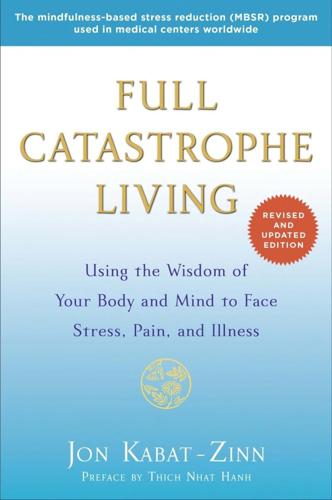
Full Catastrophe Living (Revised Edition): Using the Wisdom of Your Body and Mind to Face Stress, Pain, and Illness
by
Jon Kabat-Zinn
Published 23 Sep 2013
Another important element pointing toward the need to include a role for the mind in a more accurate model of health and illness has always been the placebo effect, a very well-known phenomenon for which the standard biomedical model had no explanation. Numerous studies over the years have shown time and time again that when people believe that they are taking a drug of a particular potency, they show significant clinical effects typical of the drug in question, even when they did not actually receive the drug but only a sugar pill, known as a placebo. Sometimes the magnitude of the placebo effect comes close to the magnitude of the drug itself. This phenomenon can only be explained by assuming that the very suggestion that you are taking a powerful drug in some way influences the brain and nervous system to create conditions in the body similar to those produced on a molecular level by the presence of the drug.
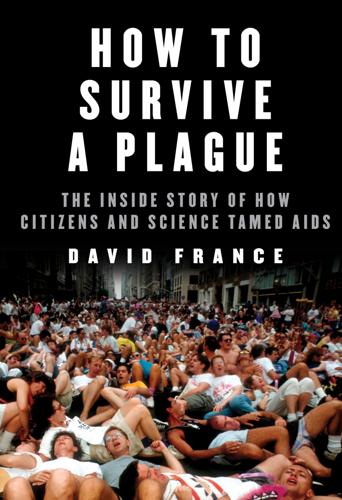
How to Survive a Plague: The Inside Story of How Citizens and Science Tamed AIDS
by
David France
Published 29 Nov 2016
Each patient received the same number of pills on the first day, and each was observed carefully over the next forty-eight hours, including near-hourly monitoring of blood and urine. He had no way of knowing if he was on the actual drug or a placebo, which was still being used. None of the patients on the ward experienced ill effects. Apparently, the L drug was as well tolerated as the sugar pills. When Bahlman returned a few weeks later for a second dose, Dr. Fauci paid him a visit. Bahlman enjoyed the proximity to Fauci’s world. It also gave him something that ACT UP had not yet developed strongly: close contact with the pharmaceutical industry. As a trial subject, he wrote to Merck requesting a meeting to discuss their research plans; he wanted to press for diversity among the patients in the trial, as his time on the ward at NIH revealed few women or people of color.